








Welcome to the January edition of Heartbeat.
This month, we're taking a look inside Harvest View, our new reablement centre run in partnership with the local authority.
We've also shared the Midland Met roadmap from January to June 2023, pages 14-15, and heard from AaronBertram Miller on his part in Midland Met. Aaron and his colleague Stacey recently held Fundamentals of Care trainingsee more on page 7.
If you're a piano expert or know someone who is, head to page 19 to learn more about the Medical Infusion Suite's donated piano and how you can help. Enjoy
Contact us Communications Team Ext 5303 swbh.comms@nhs.net Communications Department Ground Floor, Trinity House Sandwell Hospital Published by Communications Team Sandwell and West Birmingham Hospitals NHS Trust Designed by Medical Illustration, Graphics Team Sandwell and West Birmingham Hospitals NHS Trust
ideaThis month I’d like to reflect on the selfless determination to put patients first that I have seen from you all over the past few weeks, particularly in the weeks leading up to and after the Christmas holiday period which saw us declare three critical incidents.
Those of you who know me, will be aware that I’ve been working in the NHS for nearly 45 years now and I have to say the pressure we have seen recently on NHS services right across the country is the most I have ever witnessed.
The Board and I are eternally grateful for all that you have done to get us through this period. You have been heroic in the way you dealt with the challenges you faced ensuring we were able to deliver safe care.
Thanks to all your efforts we seem to have steadied the ship: you answered the call to support safe discharges and we were able to ensure patients had the correct intervention during their treatment pathway be it in or out of hospital.
The intermediate care we provide in the community is crucial to how we support patients now and when we move to Midland Met.
We have the biggest step-down capacity in the Black Country and are the only Trust with intermediate enhanced assessment beds for patients requiring longer term rehabilitation for a maximum of six weeks.
Not long ago, I was delighted to meet the team at Leasowes Intermediate Care Centre who are caring for those on end of life as well as supporting an additional bed base for
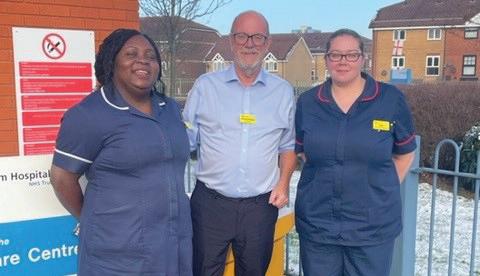
And of course, there is also the flexible bed base at Rowley Regis Hospital supporting the stepping down of patients from Sandwell and City.
In addition, we now have access to Harvest View (also situated in Rowley), an 80-bed facility for patients who need specialist support from both social care and healthcare staff all under one roof.
I am proud that our discharge offer is very diverse and established with discharge to assess offering support for patients with no criteria to reside.
We are also leading the way in virtual wards and have increased our capacity to 35 beds with a further doubling of this capacity over the next two months. Virtual ward patients receive high quality care delivered through a multidisciplinary team led by a named consultant practitioner with clear lines of clinical responsibility and governance. They are monitored through telehealth, telephone calls and home visits.
The landscape is tough, but you are doing brilliantly caring for each other and our patients. Well done and thank you.
I will be taking part in a schedule of visits to meet as many of you as possible. I’m also happy to receive direct invitations, so please email me at david.nicholson3@nhs.net to tell me a little about your team and we can arrange for me to drop by and say hello.
deliver on all three objectives, getting the fundamentals of care right, providing the best environment for our people to deliver their best care in and giving our population access to a facility and wider impact that is designed to add life to years, not just years to life.”
The Midland Metropolitan University Hospital (MMUH) is the largest new hospital development currently under construction in the English NHS making it a catalyst for regeneration in Sandwell and West Birmingham.
To ensure all partners capitalise on that fact, notable public sector leaders from across the area met recently to agree the strategy to maximise the potential of the opportunity that MMUH offers.
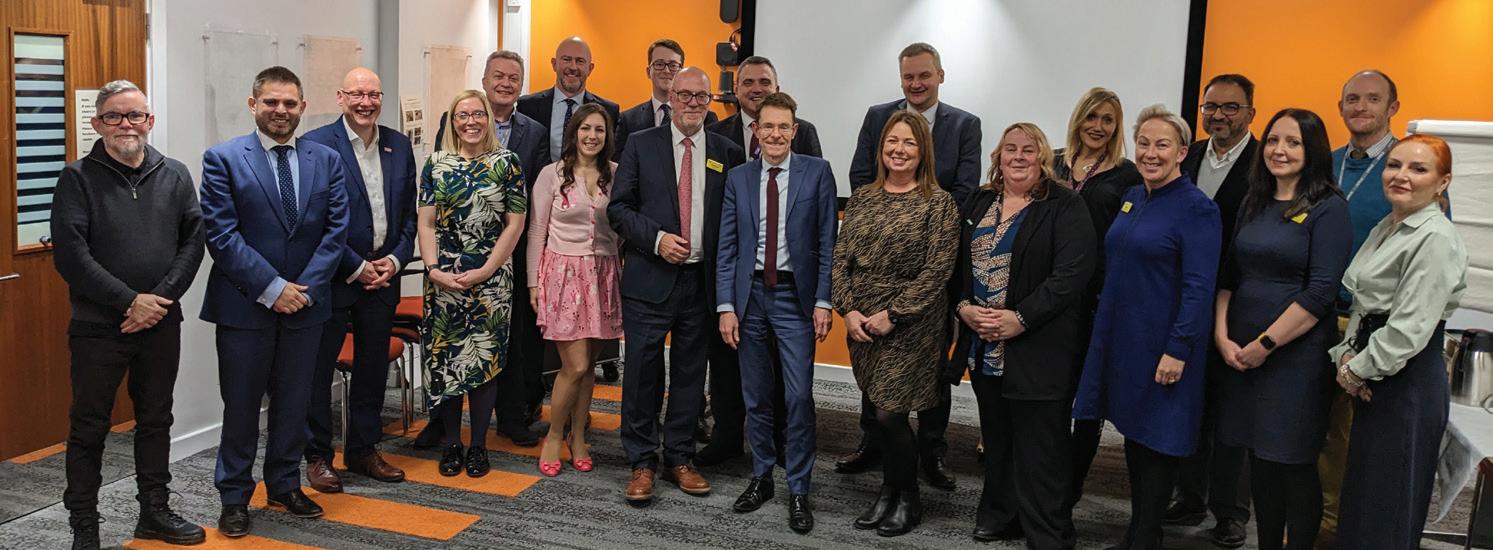
The session focussed on how the MMUH can contribute to wider economic and social regeneration of the surrounding area, thereby creating a positive benefit to the long-term health of the local population.
Chaired by Sir David Nicholson KBE, Trust Chair, the event was attended by Andy Street, WM Mayor; the leader, and senior officers of Sandwell Metropolitan Borough Council;
members and officers from Birmingham City Council; the CEOs of the two NHS Integrated Care Boards that the Trust serves; Transport for West Midlands and senior officers of the Trust.
Speaking following the meeting Sir David explained: “Our new hospital is due to open in 2024 and already we have ensured local employment opportunities on the build, with many more to come. We know that access to jobs and improving economic conditions creates better health outcomes for local populations, so we have always been committed to ensuring the MMUH delivers both on improved wealth and health.”
Richard Beeken, CEO continued: “Our Trust’s purpose is about improving life chances and health outcomes, not just treating the sick, and we’re going to do that through delivering three objectives around Patients, People and Population. The MMUH offers opportunities to
The Trust now has access to the unique 'We Can Talk' core curriculum, which can help develop your knowledge and skills when supporting children and young people in mental health crisis. The programme has been introduced with the aim of helping people struggling with mental health crisis.
Would you know how to support a children and young people experiencing a mental health crisis? It's something anyone of us can encounter as part of our role, whether that's the nursing or medical teams, allied health professionals, security, porters, reception or even hospitality staff.
Evidence shows too many children and young people report negative experiences of presenting to hospital due to their mental
health. In addition to this, hospital staff report a lack of confidence and competency in caring for children and young people with mental health needs.
We Can Talk, co-produced with hospital staff, young people and mental health experts, is an educational framework and one-day training programme designed to support sustainable changes in practice, hospital culture, and relationships between acute hospitals and mental health services to improve patient experience, reduce risk and improve outcomes for children, young people and their parents/carers.
Natalie Gough, Paediatric Clinical Educator and lead for the project at the Trust, said: “We have decided to work with We Can Talk to improve the experiences of children and young people who attend hospital due to their mental health and
All partners have signed up to a common statement of intent which declares: “The partners agree to collaborate to deliver improved health and well-being via a programme of initiatives and regeneration projects which will lead to improved life chances and a consequential reduction in inequality for our respective populations”.
Andy Street, Mayor of the West Midlands, said: “This is a truly exciting development with a forward thinking vision that brings together health, education and the arts all in one place. The acute hospital building will sit alongside a university campus and accessible outdoor public spaces hosting wellbeing activities will complement a substantial arts programme that is already underway. By working together in this innovative and cross-sector manner, we will be able to change the lives of local people for the better in the months and years ahead. I cannot wait to see this project come to fruition and make a real difference.”
the staff who support them.
“The programme’s training has evidence to improve the knowledge and confidence of acute hospital staff in understanding and supporting children and young people’s mental health.
“More than two thousand acute hospital staff across forty hospital sites have completed the We Can Talk core curriculum, with 99% reporting it would make a difference to the way they do their job.
“I would encourage all staff who work with children and young people to sign up to the free training. Together we can make a difference.”
To get involved, you can access the training by going to: www.wecantalk.online.
SWB has around 500 AHPs, 150 healthcare scientists, 50 pharmacists and over 2,200 registered nurses and midwives. In order to better understand the research training, skills, capabilities, and outputs of our NMAHPPS (nurses, midwives, allied health professionals, pharmacists, psychologists and healthcare scientists) workforce we designed and launched a research survey in May 2022 to capture information about research activity amongst our NMAHPPS population. Sent out weekly in the communications bulletin, the survey was launched at a dedicated research forum event and was sent to operational leads across the Trust encouraging wide dissemination across teams. The survey targeted NMAHPPs colleagues who are part of, or interested, in research within the Trust.
We had 101 responses to the survey in total with the largest uptake from the nursing NMAHPPs group, followed by AHPs. Staff uptake was highest in the research and development department, musculoskeletal service, acute medicine, community rehabilitation (iCARES), and anaesthetics/ critical care/pain, with respondents spread across 31 of 67 listed services. Distinct research roles included clinical trials pharmacists, research nurses/midwives and clinical research practitioners (CRPs), many additional staff were in advanced clinical practice (ACP) roles. Banding level was high overall, with over 60 per cent of participants being band 7 or above. The majority of colleagues indicated that their MSc was their only source of research training.
A small number had undertaken other formal research training such as: two people having completed NIHR internships, one individual completing a pre-doctoral NIHR training programme, two staff completing regionally funded research internships, two staff completing regionally funded PhD training programmes, and two staff completing self-funded PhD study.
Most staff were linked to a higher education institution (HEI), including University of Birmingham, Birmingham City University (BCU), Wolverhampton, Coventry, Warwick, and Keele, and specific individuals linked to Aston, Worcester, Staffordshire, Derby and De Montford. Seven NMAHPPS staff had been awarded PhDs, and two individuals reported having
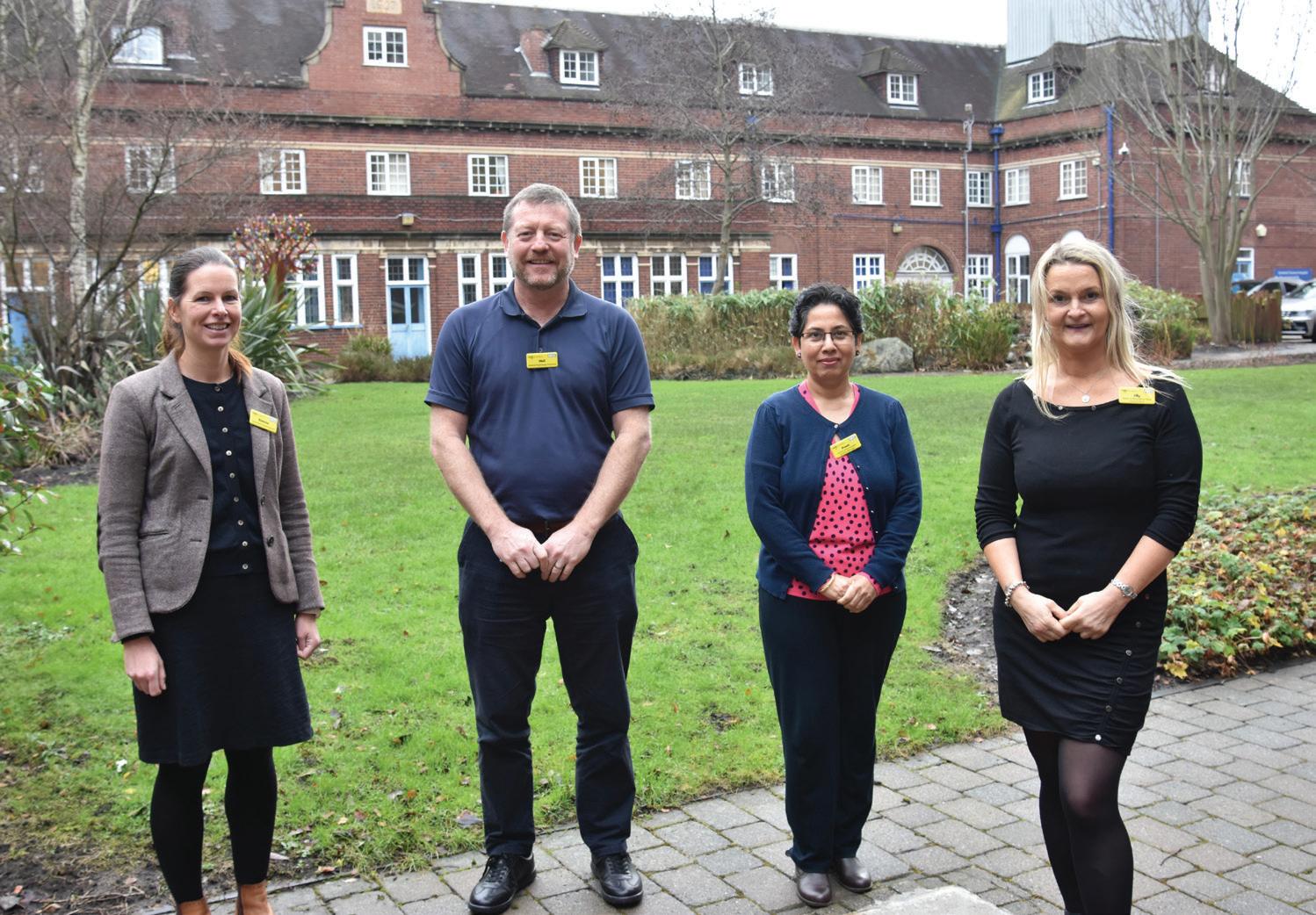 Authored
Authored
substantive clinical academic posts.
In relation to experience with research delivery, 31 members of staff reported being involved with research delivery at SWB, 12 reported having principal investigator (PI) experience, with an additional 3 reporting this at associate level, and seven reporting chief investigator (CI) experience. Five NMAHPPs staff reported having grant writing experience with four detailing successful grant applications in the last three years. Eighteen staff reported having a peer reviewed publication in the last five years, with four reporting five publications or more. Seventeen staff had presented their research at national/international conferences, and 21 had submitted posters. There was strong support from those that filled out the survey to be part of a wider NMAHPPs research group/network, and to receive regular evidence updates within the Trust about research.
In summary, NMAHPPs professionals make up around 40 per cent of our staff workforce across the Trust but are known to be underrepresented in research comparative to medical counterparts. This survey showed we had interest in research across NMAHPPs professionals but there were a high number of services with no NMAHPPs staff filling in the survey. At this point we do not know if this is due to staff not seeing comms, having few NMAHPPs staff in these services, or not having research trained, active, or interested, NMAHPPs in these areas. Another notable finding was that the majority of those filling out the survey and with research experience were
in senior roles. Our aim is to make research everyone’s business and engage staff in research earlier within their career pathways. There were also great examples of research activity including: PhD level training, joint academic posts, PI/CI experience, successful grant applications, research papers and presentations.
We are now using these survey results to better understand our baseline with regards to research training, activity, and delivery, and to develop our NMAHPPs research strategy and objectives. This is aligned to the Trust’s overarching research strategy aiming to support NMAHPPs professionals to make an increased contribution to the Trust’s exciting research vision, helping to deliver better outcomes for our patients.
If you would like to hear more about our work or to join our online network, please sign up to Knowledge Hubour online research forum. Use your Trust email id to register on Knowledge Hub https://khub.net and assign 'Sandwell and West Birmingham Clinical Research Forum' as your Group. This online space allows you to network, provide peer support, collaborate with others, share knowledge, develop best practice, and become aware of education and research training opportunities available in the Trust and outside. If you have any queries, regarding the registration, please email preeti. puligari1@nhs.net
For free, secure access to a range of high-quality digital resources from the extensive, NHS-funded collection including e-books, journals, study aids, clinical decision support tools, databases of clinical management and social policy information and more, you need an NHS OpenAthens account.
The NHS Knowledge and Library Hub and the national clinical decision support tool, BMJ Best Practice are accessed through NHS OpenAthens, as well as a large collection of OUP medical handbooks, the Royal Marsden Manual, Maudsley Prescribing Guidelines and more.
NHS OpenAthens is not a resource in itself, but the ‘key’ that unlocks a range of quality, trusted, evidence-based information for health and care staff throughout their career. So, it is important you have an active account.
One of the primary advantages of having an up-to-date NHS OpenAthens account is being able to get to these online resources wherever, whenever you need them, from any connected device at work, in practice, on call, while studying and at home, 24/7.
NHS OpenAthens, and the resources it unlocks, is available to more members of the wider
health and care community than you might think. Along with staff in NHS trusts, GP practices and treatment centres, other professionals can get an account, including:
Social care staff, social workers and public health professionals, along with prisons staff. After registration, the NHS Knowledge and Library Hub is probably a useful first point to use your account to browse the varied range of quality information.
Nurses and midwives can get some very specific resources such as the Royal Marsden Manual, CINAHL along with a long list of relevant Oxford University Press manuals.
Community pharmacists and dentists are also eligible getting access to resources such as Maudsley Prescribing Guidelines, Medline, EMBASE, the Health Research Premium Collection and relevant OUP handbooks.
GPs and practice staff, including locums while working within a practice can get access to an extensive and varied list of relevant resources to use day to day.
Allied health professionals – across all
professions there is something for you –once registered on NHS OpenAthens, start with the Knowledge and Library Hub to explore.

Leaders, managers and operational teams can benefit greatly from signing up for an account, not only because the core content offers more than clinical evidencebased information but also to direct their colleagues and staff teams to the resources which will save organisation time and money by giving them access to the centrally funded assets.
Students on healthcare courses are usually registered by their university library but may also get registration while on placement – perfect for all your studies and research.
Sign up today or renew your account to unlock a host of evidence and knowledge throughout your career!
The NHS OpenAthens system is funded and managed by NICE on behalf of the NHS in England.
Our tissue viability team hosted a special event in the Sandwell Education Centre in December 2022 to help increase knowledge and understanding of pressure ulcer prevention.
The all-day event was aimed at all clinical colleagues, based both at the hospital and in the community.
“There were a variety of topics covered on the day including preventing harm from pressure ulcers, how to manage at risk moist skin, pressure mapping and product updates around continence, barrier skin protection, pressure relief equipment,” said Lesley McDonagh, Clinical Lead Nurse - Corporate Nursing.
“We also launched our new moisture associated skin damage pathway to give staff better and clear guidance on best practice when caring for the skin of our patients.”
The stop the pressure event supports the Trust’s strategy around fundamentals of care, a harm free care approach.
On the day, the tissue viability team and other key stakeholders - including orthotics, adult safeguarding and community practice educators - facilitated a mixture of workshops and training around pressure reliving equipment advice and procedures.
With over one hundred attendees on the day, Lesley believes the event was hugely beneficial for colleagues.
She said: “The stop the pressure event gave staff valuable resources and knowledge to take back to their wards and areas and educate their teams.
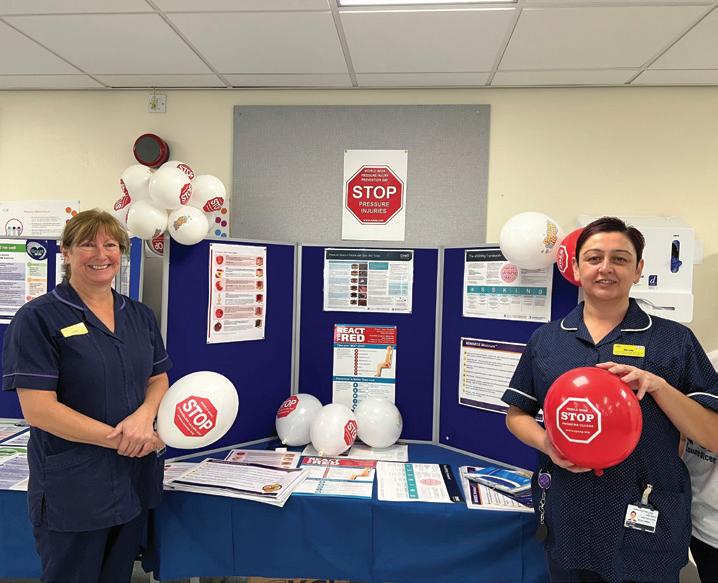
“The event also presented attendees with the most up to date and best practice for pressure ulcer prevention which is key in in preventing unnecessary harm to our patients as a pressure ulcer developing is detrimental to patient care.
“Pressure ulcers, also known to many as pressure sores or bedsores, are injuries to the skin and underlying tissue, primarily caused by prolonged pressure on the skin. They can happen to anyone at risk, with a period of reduced mobility. Unfortunately, many of our patients find themselves in this position which is why pressure ulcer prevention is so vital.”
As part of the Trust’s engagement work across the region, SWB hosts a youth forum every 4-6 weeks to engage with the young people in the local community. However, the forum to close out 2022 had a slight twist in the form of a communications takeover!
Despite icy conditions, the forum was well attended with a diverse mix of new and existing members present from students aged 14 all the way up to 20.
To acclimatise the new members at the event, the forum began with a little ice breaker so the young people could become more comfortable with each another. They were then asked about what they felt the role and the purpose of the youth forum is.
Jayne Salter-Scott, Head of Public and Community Engagement believes the event went better than expected despite the challenging circumstances.
She said: “Due to the event being so close to Christmas and the horrendous weather, we were expecting a low turnout. However, the young people proved me wrong: the event was well attended and all the young people who came along really added value to the session.
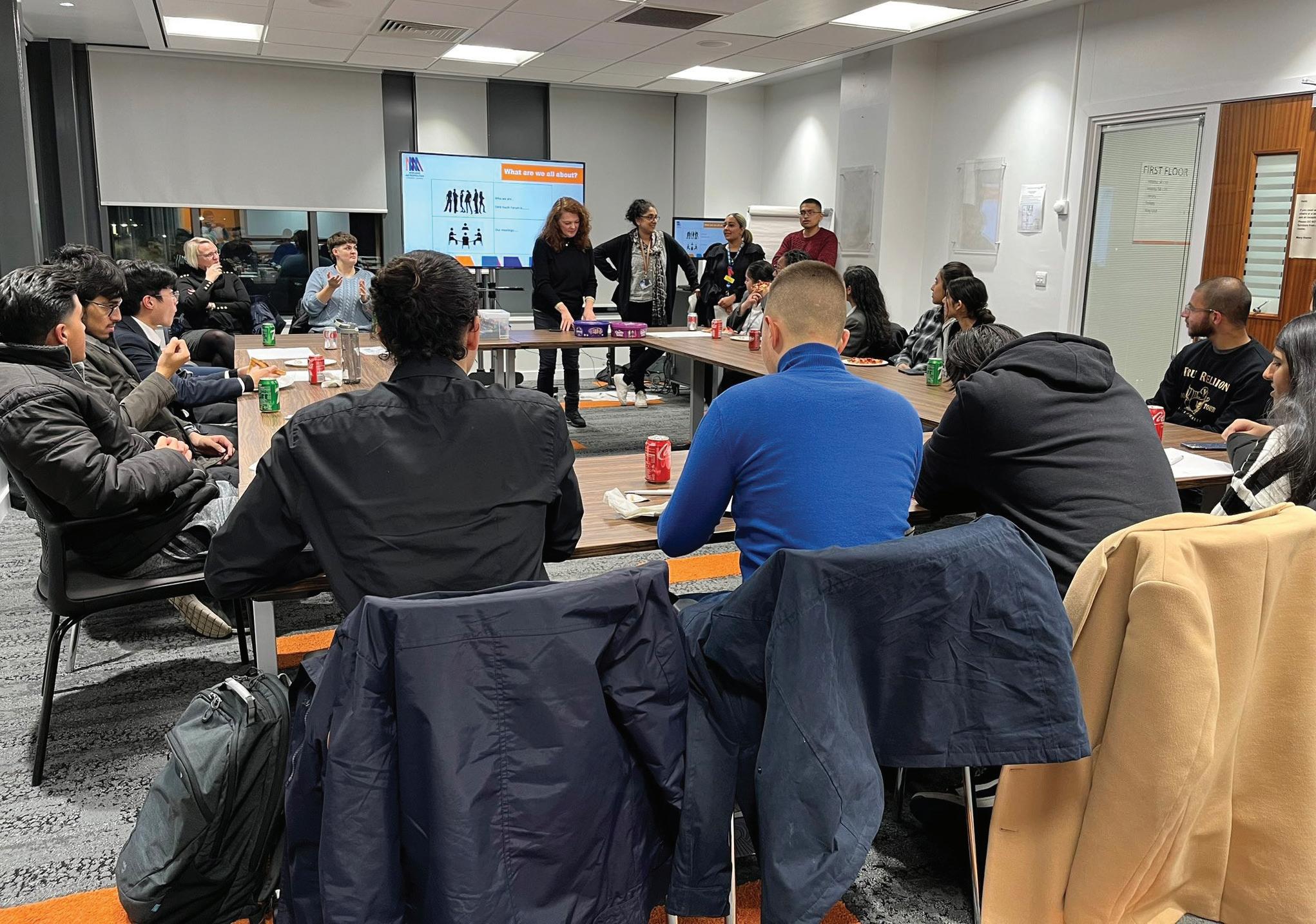
“I always remind anyone who attends that the forum is a two-way relationship – we get their feedback and thoughts about services within the hospital and the community and then we in return support them, especially if they are interested in a career in a health care setting in the future.”
As part of the communications takeover, the young people were asked to complete an array of tasks including words they associate with the Trust currently, their thoughts on our current website and how can it be improved, as well as coming up with a potential future strapline or slogan for the organisation as it looks to grow in 2024 with the opening of Midland Metropolitan University Hospital.
Anil Patel, Digital Media Officer was part of the communications team who facilitated the session and was very impressed with all the young people and their positive contribution.
He said: “Some of the feedback from the forum was excellent and the team will certainly keep much of it in mind when looking at our communications strategy in the future.”
Manisha Chahal, External Communications Officer echoes these thoughts and said: “It’s always great to hear the views of others especially those outside of the organisation. Much of their feedback and criticisms will prove invaluable in helping us to improve what we do within the communications team and SWB as a whole.”
She added: “I must say a huge thank you to all the people who attended the session, and I can only hope it was as useful to them as it was to us.”
Are you interested in joining or finding out more about the youth forum? The next session will be taking at the Sandwell Education Centre, 6pm – 8pm on Tuesday 31 January, Tuesday 28 February and Tuesday 28 March. For further information or to get involved, please call please call 0121 507 2671 or email swbh.
engagement@nhs.net.
SWB’s nursing and midwifery clinical education team work to provide education, resources and support to nurses and midwives across the Trust. Recently, Heartbeat covered nursing associate apprentice training, and the team have gone on to roll fundamentals of care training to student nurses and midwives on placement at the Trust.
We spoke to Aaron Bertram-Miller and Stacey Clarke, Nursing Associate Practice Educators, who are behind the formulation and delivery of the training.
Stacey commented, “Usually, nurses and midwives would receive separate training: they’re not usually included in the same group. We’re really excited to be bringing our student nurses and midwives together for fundamentals of care training. This was a big milestone for us as a team.”
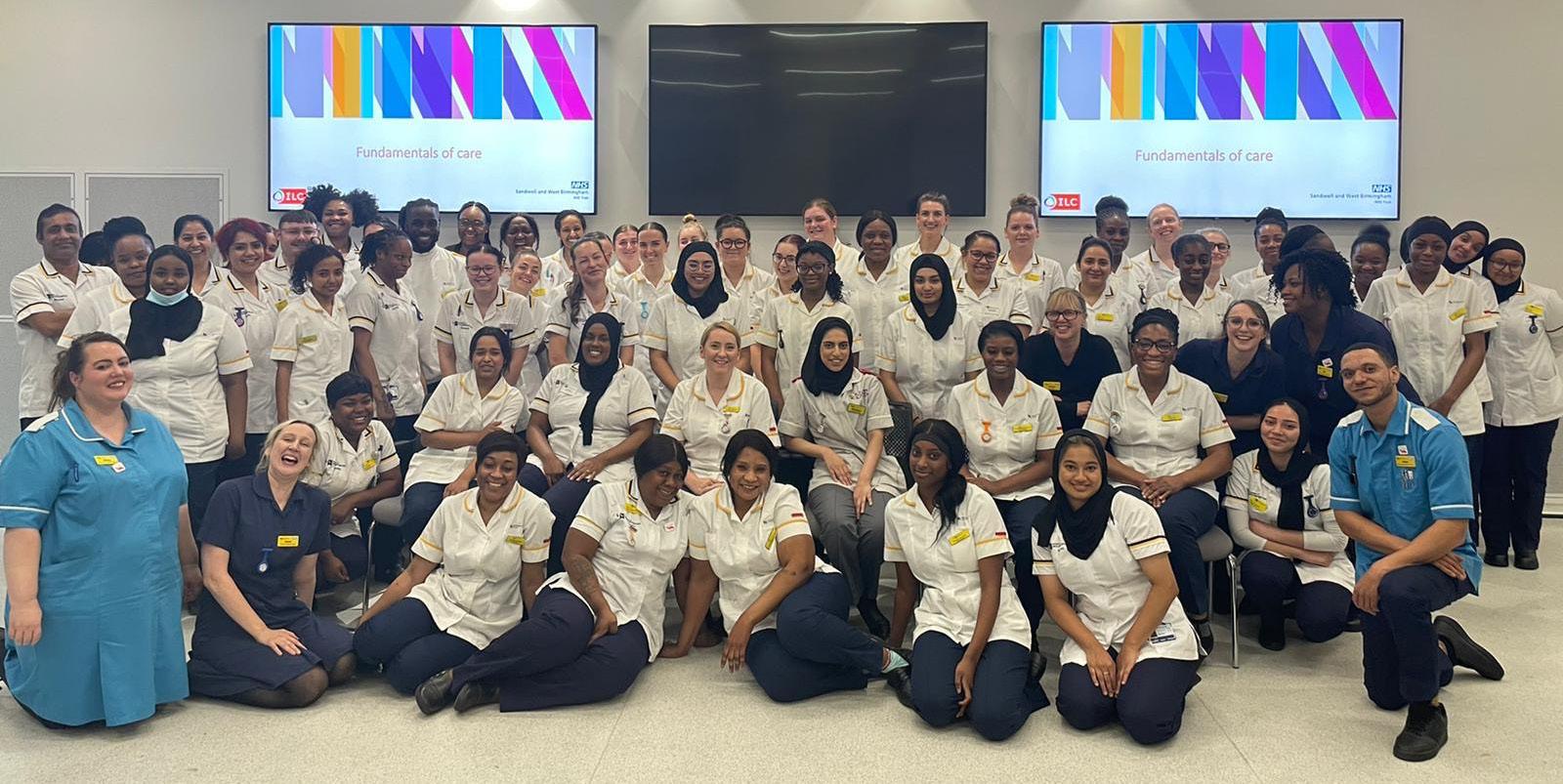
Aaron added, “The training goes back to basics: sometimes we can be so busy that we forget about the little things. Something as simple as a cup of tea can make a difference to someone in hospital.”
The training, coordinated and delivered by the team, takes place from 9am - 5pm and includes sections from Chief Nursing Officer Mel Roberts and Group Director of Nursing Di Eltringham, as well as Head of Patient Experience Jamie Emery and Deputy Group Director of Nursing Charles Chambara. It covers the three dimensions of fundamentals of care and explains the importance of many different aspects of care. Though the training is optional for students, uptake has been excellent. The team have delivered one session to around 80 students and have two further sessions planned so far. Feedback has been excellent, with attendees calling it “educational and informative” and stating "the fundamentals of care session was
very good with great interaction from others".
Aaron and Stacey hope that educating student nurses and midwives, who may go on to have long term careers within the Trust, will ensure the fundamentals of care approach is embedded into the care we provide across all wards.
“By providing fun and engaging training, we hope we can help future nurses and midwives to provide all patients with personalised and compassionate care. Fundamentals of care is such a relevant approach to both groups and we hope the attendees become advocates of the approach in their future careers, wherever they end up working.”
get pleasure from knitting the baby bonnets, cardigans, gloves and hats. Online charity, Textiles Satkaar Group, also donates baby sets which are knitted and crocheted by ladies who chat via Zoom to overcome their feelings of isolation.
Did you know that when you buy something from the Agewell Shop, located at the entrance to the outpatients’ department at Sandwell Hospital, you are also helping support older people across the borough?
Agewell is a Sandwell-based, social enterprise which since 1997 has been delivering services to help local, older people to stay healthier and enjoy a better quality of life. As a Community Interest Company, any profits made are reinvested to enable more local, older people to be supported.
Agewell Services Manager, Pauline Withey runs the shop along with other staff members and a team of volunteers.
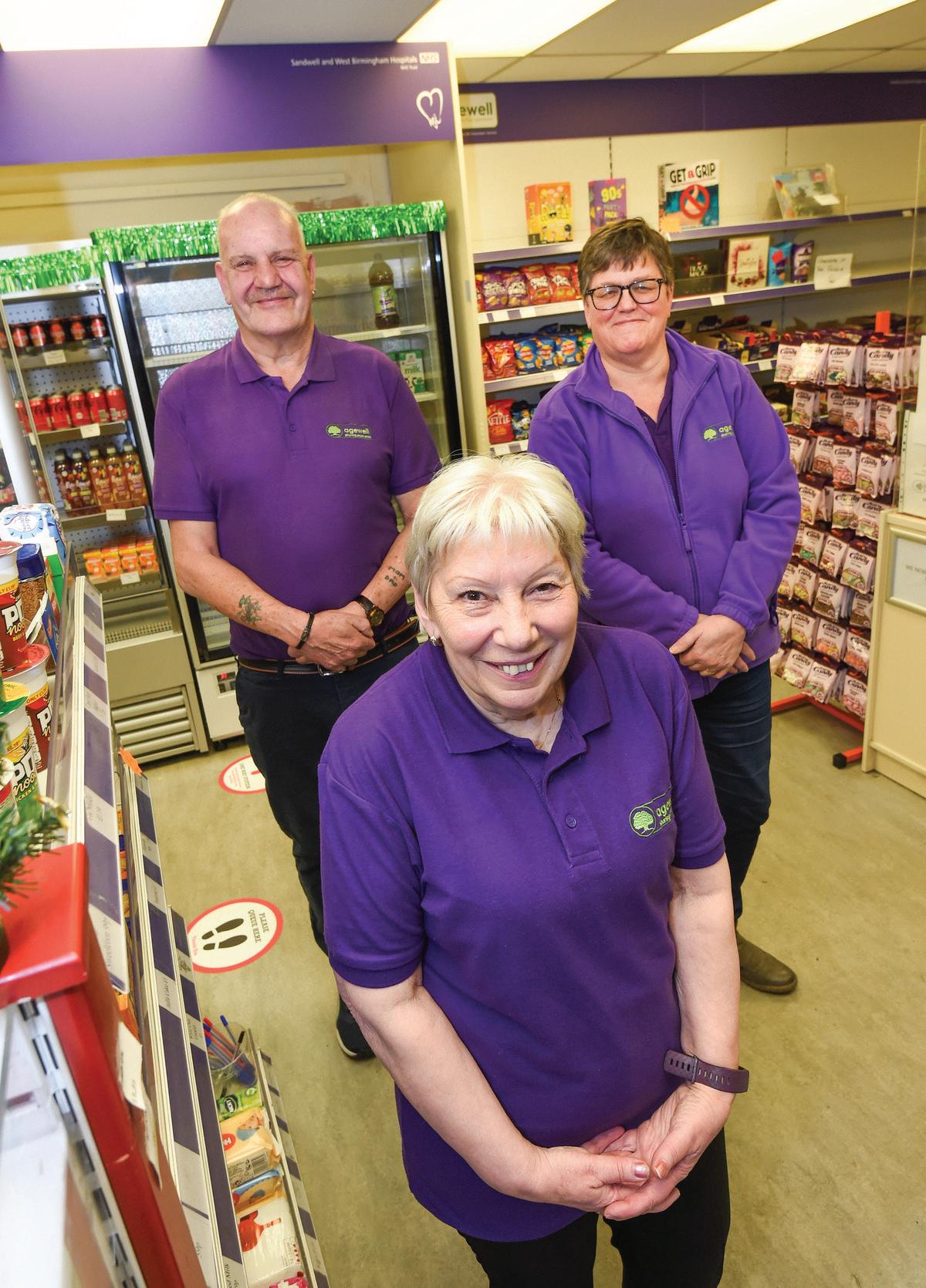
“Our volunteers are amazing,” says Pauline. “Two of the five currently working with us have been here since April 2016 when we first opened our doors and I can’t speak highly enough about them and their dedication. We are like one big family supporting each other – and we are always looking for other volunteers to join us, so please come forward if you think this may be something you’d like to do.”
The shop is open Monday to Friday and is popular with staff, patients and relatives who want to pick up a quick drink, snack or newspaper. Prior to Covid, a trolley round also took place daily and it is hoped this will start again soon.
Donations of quality second hand items, including books, are received regularly and are always welcome. Sandwell Libraries have recently donated some of their obsolete paperback books which are very popular. Most books sell for 50p and many are bought and donated back to the shop several times. Children’s toys, crockery, coats and other second hand clothes don’t hang around for long either, so pop in regularly and you could pick up a bargain!
There’s often a good selection of hand knitted items on sale too thanks to a local housebound lady and her neighbour who
The shop is also home to the popular Sapphire Service which Agewell delivers in partnership with the West Bromwich African Caribbean Resource Centre. This service is an integral part of the integrated discharge hub at the hospital and provides up to six weeks of support for older patients leaving hospital to help prevent their readmission. It’s run from the office at the shop and receives around 25 new cases every week. Look out for staff in their eye-catching green t-shirts and hoodies.
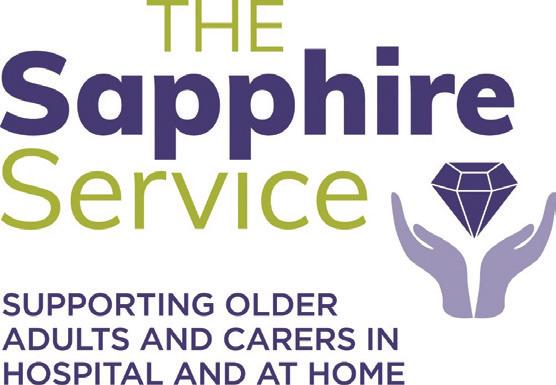
A new addition to the service over the past 12 months has been the supply of emergency food parcels which are put together in the shop for patients being discharged from hospital who might not have carers visiting until the following day. A typical parcel includes a loaf of bread, cheese, butter, milk and biscuits as well as some tinned and packet items.
“Our hospital shop really is a hive of activity,” concludes Pauline. “Thank you to everyone who supports us with their custom and donations.”
If you’d like to find out more about Agewell, please call us on 0121 796 9333 or visit www.agewelluk.org.uk
Our capacity managers work to manage and maintain patient flow, from admission through to discharge. With our new strategy and values in mind, this is a crucial role as it focuses on the patient journey and helps link up clinical and corporate procedures. We spoke to Saffyna Elleston, Capacity Manager, to learn more about her background and how she ended up in her role.
Can you give a brief background of your career – where did it all start?
In my childhood years I was a very active individual committing to various sporting activities, however during my teenage years I was inspired by my grandmother and great grandmother’s work ethic in the health sector, both being nurses. I graduated in 2016, and I was appointed a job within SWB on the acute medical unit (AMU).
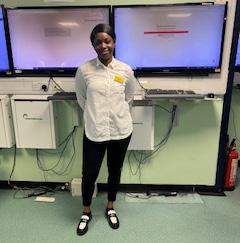
During my five years on AMU, I gained many clinical skills including arterial blood gases, non-invasive ventilation, assessments, cannulation and immediate life support. Whilst on AMU I was successfully seconded for a band 6 sister role. Within this role I was able to gain leadership and managerial skills, where I supported junior staff and coordinated the unit.
What attracted you to capacity management?
During the band 6 role, I exposed was to different elements of the emergency chain of command. I found it to be a great eye opener, giving me a birdseye view on the overall process. This enlightened me and I felt that it
would be beneficial for my career if I understood the corporate and clinical aspects of the NHS. This prompted me to look into career changes, and when the position came to light it seemed like a natural progression for me.
What skills do you bring to the role?
Throughout my nursing carer I gained various skills which have enabled me to progress into this position. As I come from a clinical background, I’m able to use my knowledge to advise members of the team. I thrive on challenging and busy working environments, and I can adapt to situations quickly: a beneficial attribute due to the constant pressures and unpredictability of the sites. I am a great team worker and I have worked in collaboration with members of multidisciplinary team, which in turn has enabled me to gain great relationships throughout the Trust.
What does your role entail?
As a capacity manager it is my role to work with the clinical teams to ensure we maintain patient flow from admission to discharge. Working closely with all levels of staff across all four sites of SWB assessing the sites at varies stages of the day, I then in turn create plans and suggestions to ensure safe patient flow.
What do you like the most about your role?
I enjoy working with diverse groups of staff and communicating across all levels. I support and advise colleagues around patient flow, maintaining key relationships with internal and external stakeholders.
What do you want to achieve in your role in the next 12 months?
Working as a capacity manager over the last 10 months I work closely with the senior capacity manager, and I aspire to shadow and learn more from them. I am also undertaking additional competencies for my personal development.
What are your future career aspirations?
I am young and very career driven; I want to achieve outstanding outcomes for our patients, people and population whilst enhancing my knowledge and skills.
We’re working with the Black Country Integrated Care Board (ICB) to help shape an NHS Joint Forward Plan setting out how to meet the health needs of the population.
The document is an opportunity for the Trust, ICB and our neighbouring NHS Trusts to work with local people, our health and care partners and staff to develop a plan that is locally owned, delivers the national ambitions and recognises our collective strength in working together to resolve our common challenges.
Mark Axcell, Chief Executive of the Black Country ICB, said: “We want to help everyone in the Black Country have improved health, now and in the future. The Black Country Integrated Care Board is writing a plan with local NHS Trusts to set out how we will work together with other partners to improve health outcomes, tackle inequalities, make sure we make the most of the money and services we
have, and to help support our local area and communities to develop.
“In the plan we will describe how we are going to use NHS resources (money and people) to deliver on the NHS targets and requirements set nationally, along with how we will work to meet the health needs of local people.
“Whilst we are producing an NHS plan, we are clear that much of this cannot be achieved alone. We are committed to working with partners in Local Authorities, the community and voluntary sector and with other colleagues such as housing, fire and education, to support the aims as described in our systems Integrated Care Strategy.
“Ultimately, we want to deliver high quality NHS services, that are there when you need them in a more joined-up, preventative, and person-centred way.
“We recognise that health is more than the
healthcare system. It is not just about NHS hospitals, doctors or nurses, health is about people’s lives and can be determined by people’s financial and social circumstances. We want to consider all these issues as we write our plan for the next five years.
“We want the plan to be informed by you, the local people using our services and those working within them. It is really important that we focus on putting resources and effort into where it is most needed.
“We know you get asked by many groups and organisations to feed into strategies and plans, however this is a unique opportunity to shape something new so we would love to hear your views.”
To get involved go to https:// blackcountry.icb.nhs.uk/get-involved/ current-consultations-and-engagement/ shape-jfp#what-jfp
Over the next several months, we will celebrate winners of the 2022 Star Awards, recognising them for their hard work and the positive impact this has had on our people, patients and population. We’ll be speaking directly with the winners to get their views and hear what winning meant to them.
For this month’s Our Winners, we spoke with the winners of the Sustainability Award and Volunteer of the Year.
2022’s Sustainability Award went to Rhea Conn. A senior sister on the critical care ward, Rhea has worked for the Trust since 2009, and has always been based in critical care. However, recently Rhea’s role at the Trust underwent a change – whilst she’s still working on the ward for 30 hours per week, she now spends 7.5 hours dedicated to a newly created role as clinical sustainability lead. We caught up with Rhea to find out more about her work.
“The new role is part of a pilot programme and follows on from work I’ve been carrying out on the ward for quite some time. I started out by carbon footprinting a particular piece of equipment and reducing its use across the ward, and carrying out a project in which I ensured all staff in critical care brought in their own bottles to prevent use of polystyrene cups and single use plastics.”
Working as part of a Trust-wide sustainability team, Rhea’s aim in the role is to help bridge the gap between estates and clinical departments; “Historically, sustainability has been quite nonclinical and has sat within estates as a department. However, the data show that around 25 per cent of our overall emissions come from medical equipment and pharmaceuticals, so my aim is to reduce this wherever possible.”
With a goal to be carbon neutral by 2040, trusts across the NHS are considering how to reduce their carbon footprint. SWB is doing well – we’re the first trust to be piloting the scheme behind Rhea’s new role. Rhea has done courses in carbon footprinting for healthcare; sustainability quality improvement; and the RCN course “leading sustainability in health and social care”, so she is well qualified.
Discussing the Star Awards win, Rhea commented: “It’s a massive personal achievement, because I did a lot of the initial work in my own time, some of it during the COVID-19 pandemic. We were hit really hard in critical care.
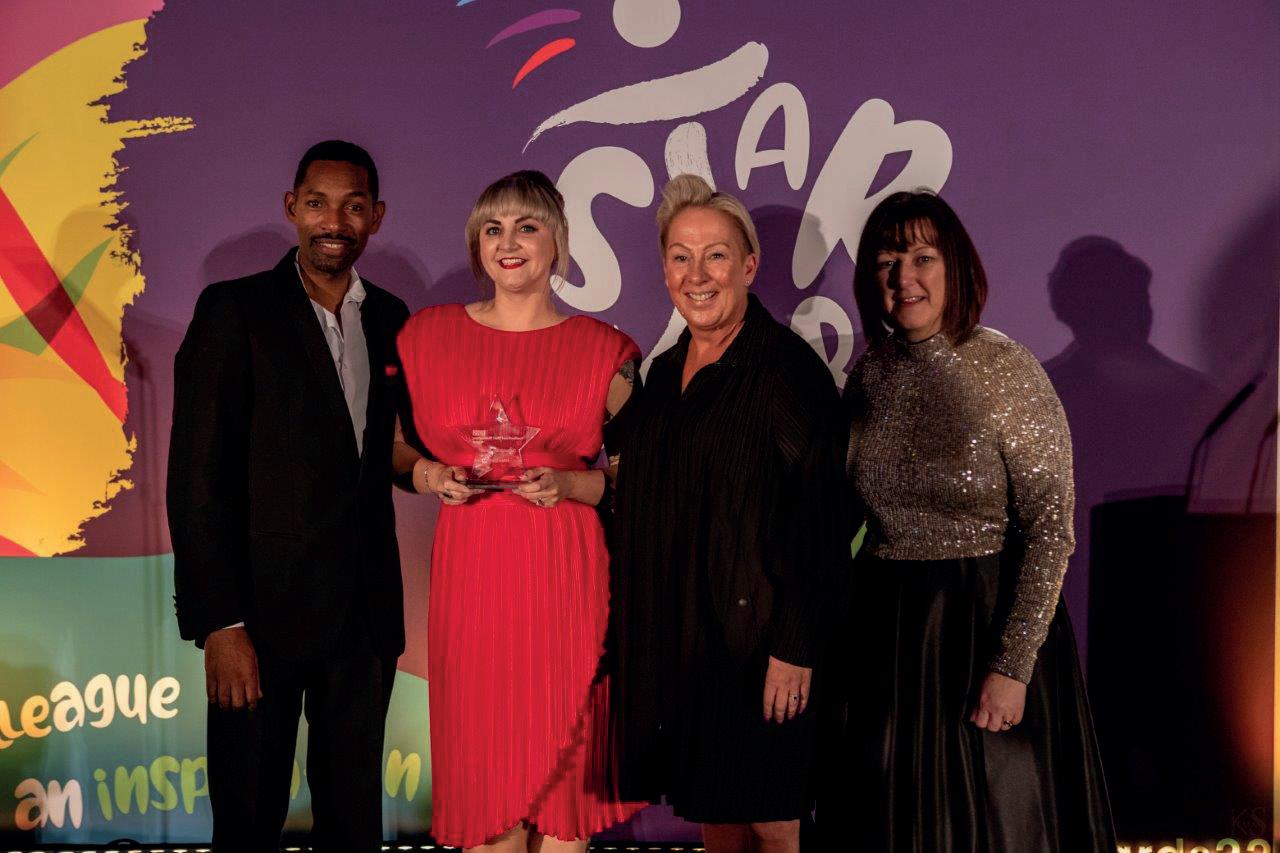
“Winning the award showed that the Trust believes in my work – this has also been clear through their decision to support me doing the new role for part of my week.“
As well as the personal achievement, Rhea also hopes the win raise the profile of her work, stating “part of my role includes supporting colleagues to carry out their own projects. When you discuss sustainability with colleagues, you realise there are plenty of people who are passionate, but aren’t sure how to proceed.
“I can work with people to help them lead their own projects. For example, recently I was contacted by someone from cath lab after they read about my role in Heartbeat, and we’re working together on a sustainability project to reduce plastic use on the ward.
“If anyone reading this has an idea on sustainability you would like to discuss, please get in touch with me and we can explore further.”
You can contact Rhea on rhea.conn@nhs.net, or @greenicunurse on Twitter.
Picking up the Volunteer of the Year award for 2022 was Michael Reay. Most of those who work at City hospital will know Michael – since 2019, he’s been the friendly face at the front entrance to the hospital.
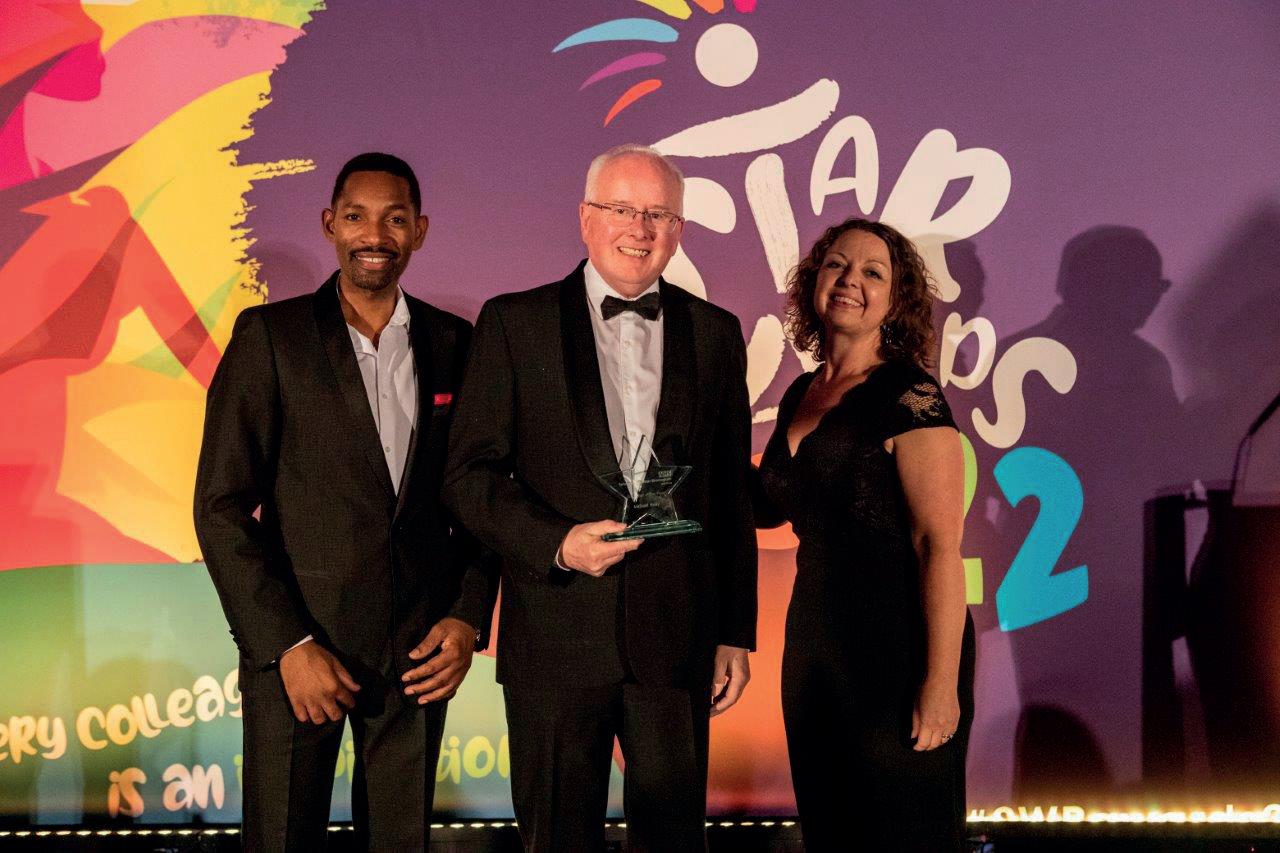
Michael told us, “My career path was in hotel management, and I worked in the industry for 25 years. In the year 2000, I saw some adverts to become a driving instructor, and decided to do a training programme.
“I qualified as an instructor in 2003, going on to work for Birmingham’s AA driving school for 16 years. Instructors have a badge that needs displaying, and when mine expired in September 2019, I decided not to renew it. Unfortunately, my partner Geraldine passed away in mid-September 2019 at the Queen Elizabeth hospital; during the time she spent there, I saw so many NHS staff doing a fantastic job and learnt about some of the processes.
“After she passed, of course it meant that my plans had changed. I wanted to do something with my time and decided to volunteer at a hospital.”
City is Michael’s local hospital, and he’d had appointments there before – so, it was a natural choice of location for him. After applying, he had an interview with Patricia Hunt, Volunteer Service Manager, and began by working as a wayfinder at the main entrance for two to three days a week in late 2019.
However, as we’re aware, it wasn’t long until the COVID-19 pandemic struck. In early 2020 many of our volunteers were unable to continue to work with SWB due to health conditions. Michael, not classed as vulnerable, was asked if he would be able to do five shifts a week. In his words, “I decided to step up and worked Monday to Friday, 12- 4pm. Without any visitation allowed, I found myself running bags of food, drink and gifts to patients across the hospital. I also worked closely with the PPE team, based at the front entrance.”
When restrictions were lifted, Michael continued to volunteer regularly, encountering some difficulties where family and friends were unable to visit their loved ones.
“Emotionally, it was quite tough at times and there were some disagreements when people were not allowed to visit. I found that my background in hotel management gave me the skills and confidence to deal with most of these issues.”
Michael was nominated for a Star Award in 2021, losing out to the Bereavement Support Team who enjoyed a “well deserved win”, he says. When he was nominated again in 2022, he didn’t expect to win, stating “I was absolutely stunned on the night. It was great that the efforts I had put in were recognised.”
Today, Michael can be found at the main entrance throughout the week, working as a lead volunteer. Michael urges anyone thinking of volunteering to give it a go. “I’d love to see more volunteers on board at City. I know staff spend lots of time directing people to places and so it would be great to have someone in the mornings and weekends to help out.”
When we asked if he planned to continue volunteering, he gave an emphatic ‘yes’.
“I enjoy doing the work, I enjoy meeting people, and the team at SWB are brilliant: everyone is so friendly and chatty. Just walking down the main spine today probably 10 people said hello to me. It means I’m part of the team.”
From now until when we move into Midland Met, we will be sharing updates with you about the many people involved in the project and the role they each play.
The successful opening of Midland Metropolitan University Hospital relies on many people, teams and stakeholders. Once open, it will have a far reaching impact – not only on those we care for but also on colleagues and our community in terms of regeneration, jobs, housing, charitable endeavours and so much more.

Getting us to Midland Met is a team effort. We all have a part to play in making it #morethanahospital!
This month we meet Aaron BertramMiller, Nursing Associate Educator.
How are you preparing for the opening of Midland Met in your team/ department?
We regularly inform our nursing apprenticeship associates about what Midland Met will bring to the community and the Trust.
We have regular meetings and share updates on the hospital. Information is available on the Midland Met pages on Connect, and Heartbeat articles provide helpful updates on the programme and work that is being undertaken by various teams as we all prepare for our move into our new acute hospital in 2024.
In what ways will our new hospital help to shape your role for the better?
We aim to make 25 per cent of Midland Met’s workforce nursing associate apprentices. It is a big ambition for the team, and we are developing plans to help us make this ambition a reality.
The biggest benefit that Midland Met will bring in your opinion is...
Collectively we are promoting Fundamentals of Care and our 3Ps strategy that focuses on our people, patients and population. We feel that Midland Met will bring these groups together.
There is something for everyone at Midland Met. You do not need to be a patient to visit the hospital – the community focus is impressive with the Winter Garden, outdoor green spaces and the art gallery.
How long have you been at SWB and what is your current role?
My role is a nursing associate educator, and I am part of the nursing and midwifery clinical education team. I have been in my role for ten months as this is a new role for the Trust.
What part does your role contribute to the Midland Met project?
I help train and educate nursing associate apprentices (NAAs) in the organisation.
Nursing associates work as part of the nursing team and play an important role that helps to bridge care between healthcare support workers and nurses. The focus is to deliver patient care, and our nursing associates will help shape and support the care we provide at Midland Met.
It offers a lot in the way of new opportunities, such as career development and new ways of caring for patients. I also like that it brings both Sandwell and City Hospitals together to provide all acute care in one place, effectively bringing two communities together.
Have you been on a site tour? If so, can you share any photos and your feedback with us?
I had the privilege of having a guided tour and can say it is AMAZING! There is so much space, and there will be a lot of new facilities. The Trust has put a lot of thought into making the hospital fit for purpose and bringing our patients, people and population together.
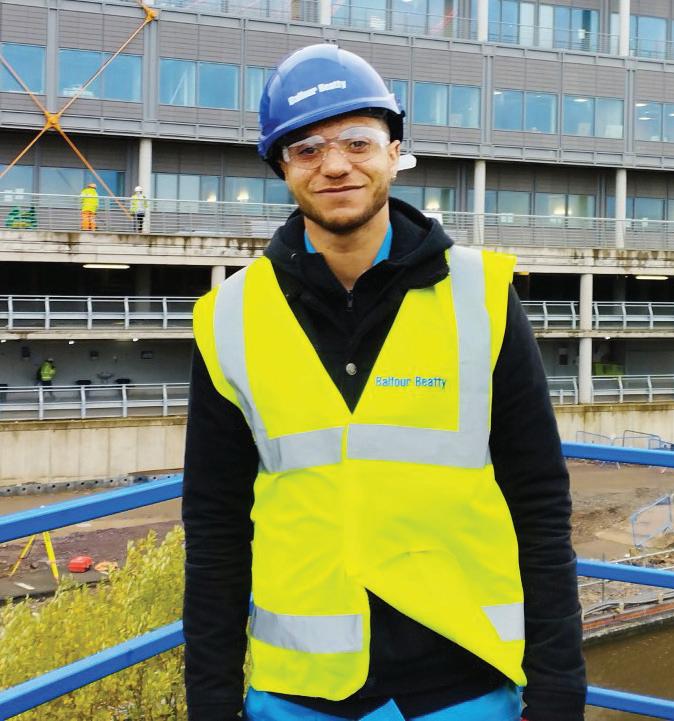
Making positive change within the communities we serve has always been one of the main strategic drivers behind our plans for Midland Met. Alongside supporting regeneration initiatives and implementing an inclusive arts campaign, our new hospital will provide employment opportunities and help to support continued growth in the neighbourhoods surrounding the hospital.

Our ambition is for Midland Met to become #morethanahospital in every sense. One of the ways we are working to make this a reality is through our arts strategy. Our plans include having an art gallery housed within Midland Met and an arts programme encouraging community groups, staff and patients to get involved.
Amy Campbell, Creative Producer at SWB, told us: “Supported by a development grant from Arts Council England, we are currently testing and developing ideas for
the development of a creative working partnership between Trust clinicians, Brushstrokes - a specialist migration community organisation and MotherShip’s team of creative practitioners with expertise in working in the community, and with migrant mothers in particular.
“We are developing an approach that centres around migrant women, for whom English may not be their first language. We are developing pop-up creative sessions in the community ahead of the hospital’s opening, aiming to use creative tools to empower migrant mothers to have the confidence to advocate effectively for their experiences and others of maternity services.”
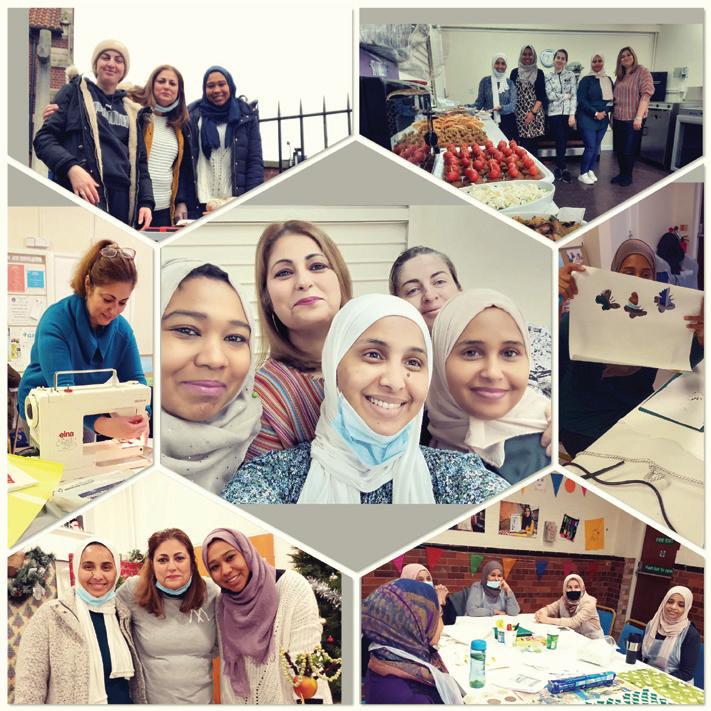
On a recent visit to Midland Met, one of the team at MotherShip explained: “I’m so happy and feel privileged to see the hospital whilst under construction. I’m impressed with the building and the thought that has gone into the design. The rooms are fantastic, especially the light coming into the rooms from all sides of the hospital.”
For more information or to get involved please contact Amy Campbell via amy.martin31@nhs.net
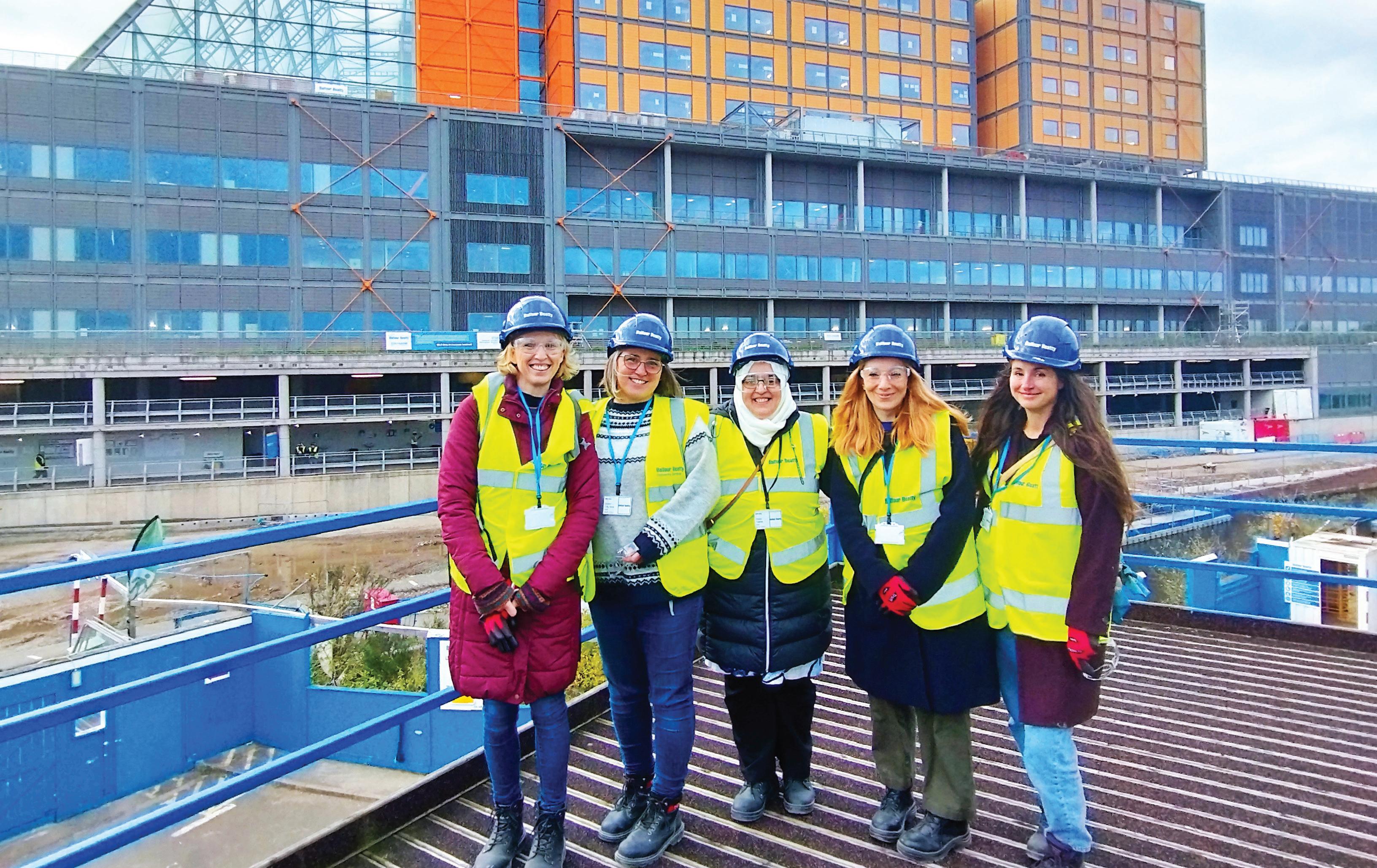
A lot is going on as we get ready for the new building. Our roadmap for the next six months sets outs key milestones in our preparation and as the building progresses.
Care
Milestones:
Public engagement on stroke pathway begins
Level 6 complete Lights on levels 5 & 9
April 2023
Benefits indicators confirmed
Identify departmental move champions
ED and assessment areas complete
Plan staff engagement over new ways of working
February 2023
Appoint hospital move partner Gas and boilers on
March 2023
Begin support interventions with transforming teams
Levels 0, 5 & 9 complete
Lights on levels 2 & 3
Agree 2 year plans with commissioners
• July 2023
- NHS 75 celebrations and zip wire
- Staff engagement on job roles / changes
• Winter 2023 / 24
- Building handover
- Hospital commissioning
• Spring 2024
- Midland Met opens
• Summer 2024
- Opening festival
Expanded pathways, staffing and defined location for SDEC
Finalise City & Sandwell estate plans
Big thank you for going above and beyond in liaising with the GP to correct my husband's eye medication.
Shout out has been a regular feature in Heartbeat and it is fantastic to see colleagues regularly taking the time to give positive feedback to each other. We regularly receive positive feedback from our patients too, and this month we wanted to share some of those heartwarming messages which have been sent via our website and social media platforms.

Thank You Yashpal!! for going above and beyond.. with sorting my new laptop. You are always very polite and keen to help, on every visit to the informatics department.
Thank you Dr Gandhi for going above and beyond to get a staff member support for her child who was at Sandwell ED.
From
Aisha has been a great support whilst I've been working on D27, she has helped me with drug histories and promptly resolves any issues that I hand over. She also dealt with a Clozapine patient recently and managed to resolve it quickly, ensuring all the correct places were contacted. Thankyou for all your help and support it is greatly appreciated!
Exceptional collaborative team work to optimise patient experience in the delivery of diagnosis and management plan, between Gastro and Urology.
Chloe worked very hard under extreme pressures on the labour ward and delivered 6 babies in 2 shifts!! Your hard work is very much appreciated.
Natalie consistently goes above and beyond to support the timely 2WW NSS RDC pathway by ensuring timely imaging results are ready for MDTs. This aids the team in getting quicker diagnosis for patients, results to patients sooner and if required pathways, investigations and or treatment commenced in a timely manner.
We have experienced challenges in paediatrics with a significant increase in demand over the past 2 weeks, regionally and well as within our hospitals, Fatema, Jo and the paediatric nurses across the unit and sites, doctors and ANPs have worked tirelessly this week to respond to the demand. Thank you for all of your hard work and for your flexibility in caring for our children and their families - your hard work is very much appreciated.
I would like to send some feedback regarding HCA Joanne Withers working today in AMUa 27th December 2022. It was really nice that she actually remembered me and my family from my many unfortunate stays with you at both Sandwell and City hospital during 20132015 when I was very poorly. This lovely lady is a massive credit to the NHS service. Always smiling and helpful no matter however busy. I've noticed in particular her exceptional patients with difficult patient's whom can be quite testing and demanding at times usually dismissed by other nurses on duty. She is a calming, friendly and extremely kind influence on others with her wonderful bedside manner.
The Cancer Hotline Team cannot thank Sandra enough for the support and time spent sharing her knowledge with the project she is currently working on, helping to progress our new service. Not only spending time demonstrating but also being the go between with IT to get us the access we all needed.
Following contact with a vulnerable young person and needing support- I made contact to Heidi for help . Heidi checked in with me to see that I was okay and listened to my worries and concerns about the young person. Heidi reassured me and gave me sound advice. Heidi is extremely busy and but took the time out to ensure that I had the support and was heard. Heidi made me feel valued and really appreciated and that was really rewarding.
I work with Nargus in HBIC and she has shown a continued passion for holistic and empathy driven care. Nargus will always seek the best for her patients and ensure family are kept up to date with HBIC's input. She works so well as part of the MDT and often supports me with nursing aspects of rehabilitation. She shares her knowledge and skills to ensure that our approach is the best for patients.
From
I would like to thank the Matron and the ward team along with the urology Reg - as my father was recently a patient on this unit and his experience was fantastic. Well done and keep up the excellent work.
From
Just to say big thank you to your guys Anton Todd, Alex Cashmore and Ibrahim Suliman for clearing the snow/ice at Sandwell ED ambulance bay.
From – Eugene Cortez
Wanted to flag how helpful and caring the phlebotomy team, particular Kiera Simcox and Sukhvinder Atkar have been when dealing with a distressed mother of a patient, who needed help following a blood test. Both went out of their way to try and ensure that the mum got the help she needed and were extremely caring in the way they handled the situation.
From
At the back end of 2022, there was a global shortage of one of the most commonly used medical radioisotopes used in nuclear medicine and radiopharmacy departments at hospitals across the country including at our Trust.
Technetium-99m is used as a radioactive tracer and can detected in the body by gamma cameras. Having a relatively short half life, the isotope is well suited to a range of diagnostic procedures that give an insight in to the workings of various parts of the body.
“Technetium-99m is attached to a drug which carries it to the part of the body which is to be imaged. This is called a radiopharmaceutical, and the process has to be done on site in our specialist radiopharmacy unit for use the same day” said Joseph O’Brien, Consultant Physicist and Head of Nuclear Medicine.
“After it is injected into the body the radiopharmaceutical allows the team to analyse how the body is functioning.
“There are a wide range of studies it is used for, such as examining how well the stomach processes food, how well the kidneys are working, whether there is a problem with the blood supply to the heart, detecting prostate cancers in the bone, staging breast cancer and assessing for blood clots in lungs.
“In addition to this, surgical procedures for breast surgery rely upon technetium-99m for staging disease.”
During the shortage, the availability of technetium-99m became very restricted. The radiopharmacy team had to prioritise areas such as inpatients and surgical cases whilst other areas were postponed based on clinical condition. A traffic light system, developed during the COVID pandemic, was brought back into use to help prioritisation of patients. As SWB provides a regional radiopharmacy to hospitals in the West Midlands, the technetium-99m had to be shared equitably.
“To combat the shortage a plan of action was put together,” explained Jilly Croasdale, Head of Radiopharmacy Department and Associate Director of Healthcare Science.
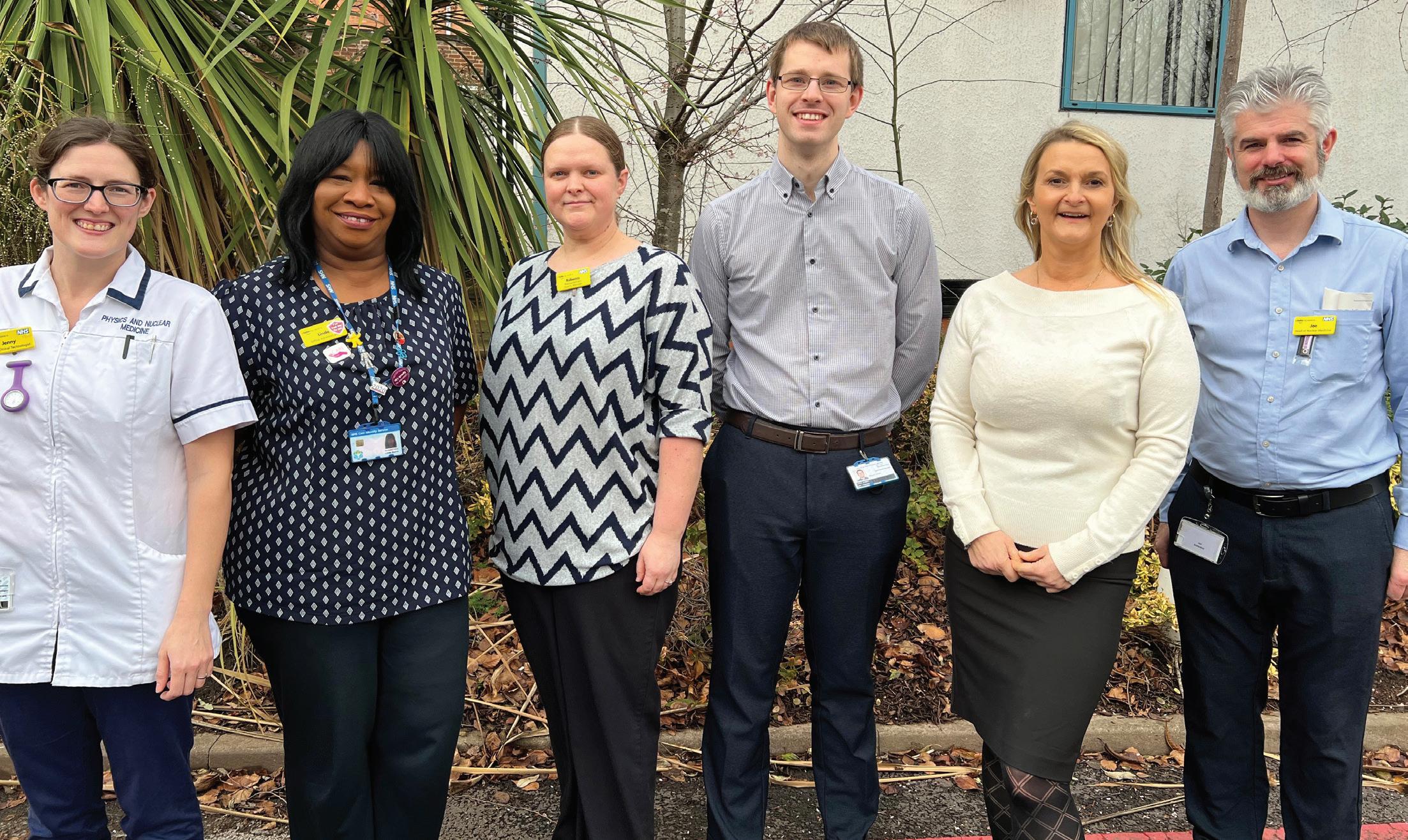
“We identified studies which could be safely postponed and prioritised studies which must go ahead, and then escalated these to an executive level. After this, we then communicated with patients and introduced weekend working temporarily to cover co-ordination of supply to and from other hospitals. As the situation changed on a weekly basis due to supply constraints, the plan was re-assessed twice a week.
“Our plan also helped to form the basis of national guidance and gave other departments strategies to mitigate shortages. This guidance was published on the British Nuclear Medicine Society website.”
IMAGING
Jilly believes without the swift action of her team and colleagues, the shortage could have been catastrophic for the service.
“In nuclear medicine, around 90 per cent of studies involve technetium-99m and so when there is a shortage it can be really challenging. However I am very lucky to be surrounded by colleagues who are talented, hardworking, who were not fazed by such an issue and are always willing to go beyond the call of duty.
“I must say a special thank you to everyone in the radiopharmacy and nuclear medicine teams, and in particular to Linda Burns, Nuclear Medicine Administrator, Shaun Johns, Radiopharmacy Production Manager, Becky Harrison, Radiopharmacy Quality Manager and Jenny ThompsonPeters, Nuclear Medicine Chief Clinical Technologist as without their due diligence, this would not have been possible.”
The Trust has recently invested in a state-of-the-art lithotripter machine at Sandwell Hospital to treat patients with urinary tract stones.
SWB has expanded its urology stone service by investing in an in-house lithotripter - a treatment using shock waves through which kidney stones are broken into small pieces that can then be passed in the urine.
The key to the success of the lithotripsy service at SWB is the strength of the urology team that supports it. This includes clinical lead Mr Sami and the stone surgeons; Mr Khan, Mr Otite, Mr Ahmad and Mr Dhanasekaran, as well as our dedicated stone clinical nurse specialist Ms Yna Dela Rosa and the dedicated radiography team.
The STORZ Medical X-FP-S lithotripter machine primarily is used to break up kidney stones. Lithotripsy itself is a low risk, non-invasive way of treating stones in the kidney or ureter (the tube between your kidney and bladder) where shockwaves are focused through the skin, onto the stone, using x-ray or ultrasound to target them.
The overall aim of using the equipment is to weaken the structure of the stone, eventually enabling it to break into very small pieces so it can be passed easily through urine.
Consultant Urological Surgeon, Mr Fahd Khan believes the X-FP-S Lithotripter will prove valuable for our patients.
He said: "It's a fantastic piece of equipment which will provide us with patient benefits for years to come. It has greater accuracy and power than previous models, and as it produces less radiation it is much better for patients.
“This will benefit our patients massively as it will result in us providing timely and effective treatment especially for emergency admissions. In addition, the machine has an array of benefits including high fragmentation efficiency, high precision stone localization, in-line x-ray localisation, minimum side effects for anyone who uses it and lower operating costs.”
Prior to investing the equipment, SWB were using an external company that used to bring a lithotripter on a truck. This would be manually set up and used to treat patients on the day of their treatment. It would then be dismantled; taken away and brought back again and is not as cost effective as owning our own lithotripter.
The lithotripter will also play a key role in Getting It Right First Time (GIRFT) strategy, an NHS programme designed to improve the quality of care within the NHS by reducing unwarranted variation. By tackling variation in the way services are delivered across the NHS, and by sharing best practice between trusts, GIRFT identifies changes that will help improve care and patient outcomes, as well as delivering efficiencies such as the reduction of unnecessary procedures and cost savings.
“In essence, it is one of the GIRFT recommendations that acute lithotripsy is a modality that should be available to treat patients when admitted into hospital as an emergency,” said Fahd.
“Our previous mobile service provided by an external company only treated patients a few times a month but the on-site machine will provide acute management of stone patients across the Black Country and will treat patients from Dudley and New Cross hospitals as part of our urology area network.
Fahd added: “As part of our long-term vision for the service, the STORZ Medical X-FP-S lithotripter will also move across to the Midland Metropolitan University Hospital which is scheduled to open in 2024.”
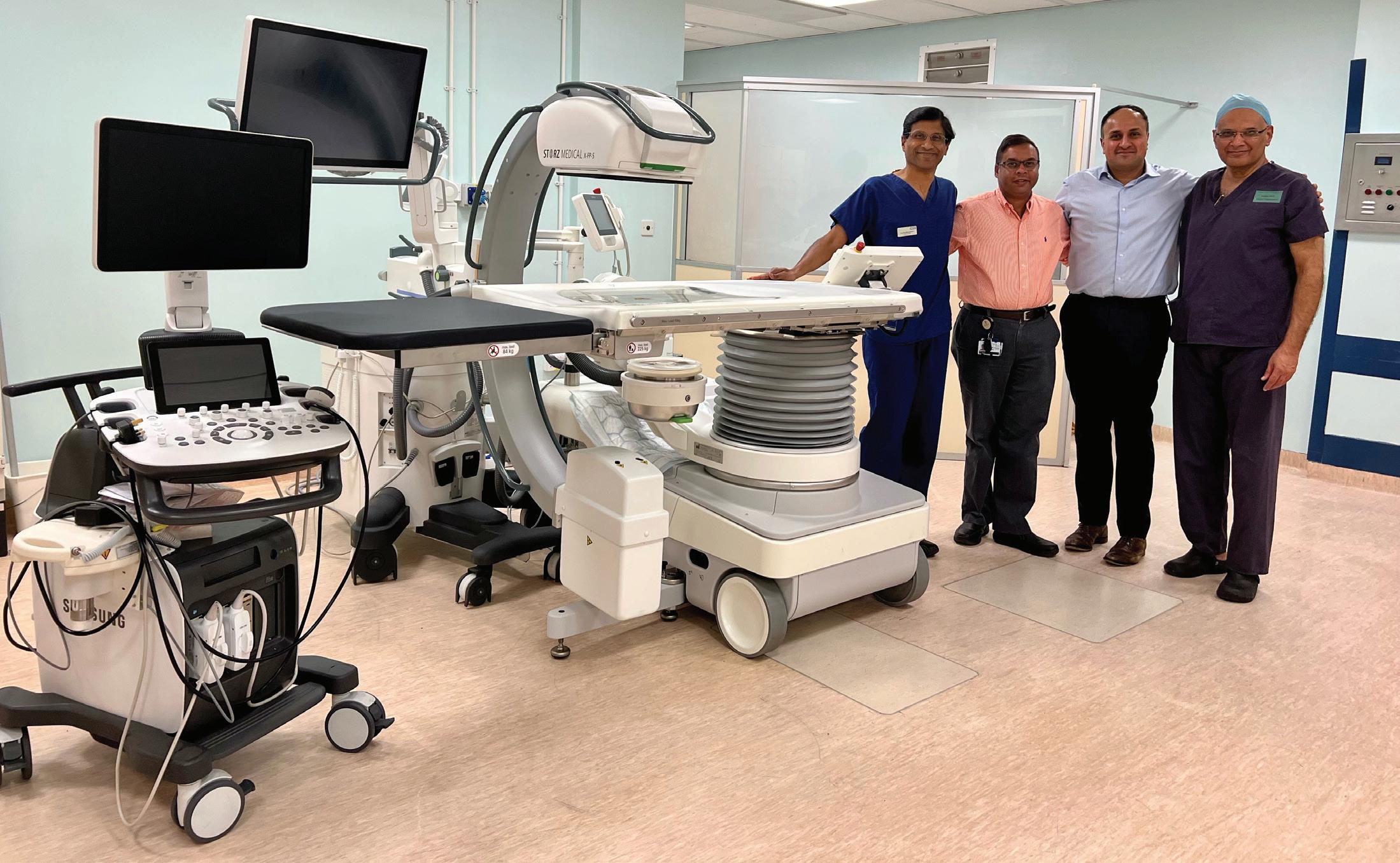
Are you a piano expert looking for a way to make a difference in your community? Look no further! The Medical Infusion Suite at City Hospital is seeking a skilled piano technician to help maintain the beautiful Louis Pabst & Co piano that resides in the ward. This instrument was once a cherished possession of a patient, and has since been gifted to the Trust. After being moved from the medically fit ward (D47) to a COVID-19 treatment unit, the piano now finds itself in the Medical Infusion Suite - a day case unit providing vital intravenous treatment to patients with a wide variety of conditions.
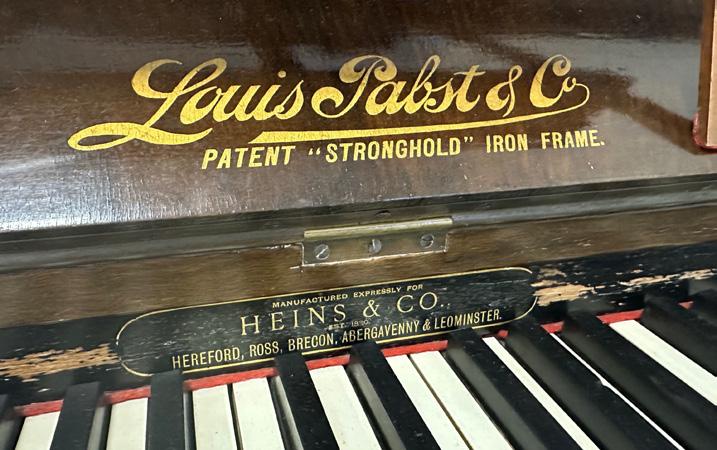
Here, the piano is not just a decorative addition to the ward, but a source of joy and inspiration for patients, students, and even staff members who are learning to play. According to Ward Manager Shehnaz
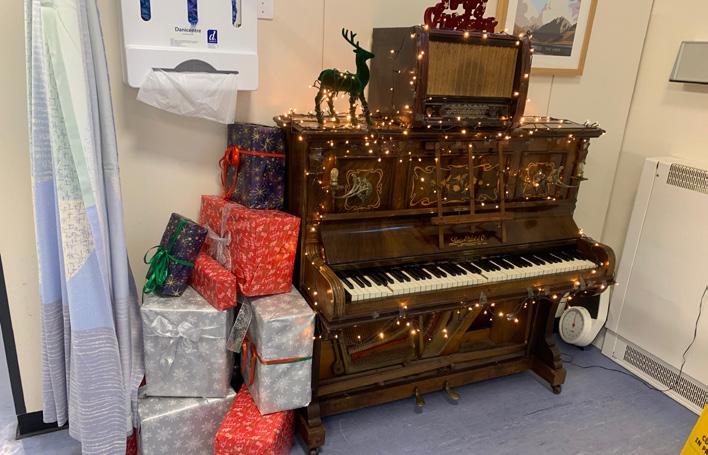
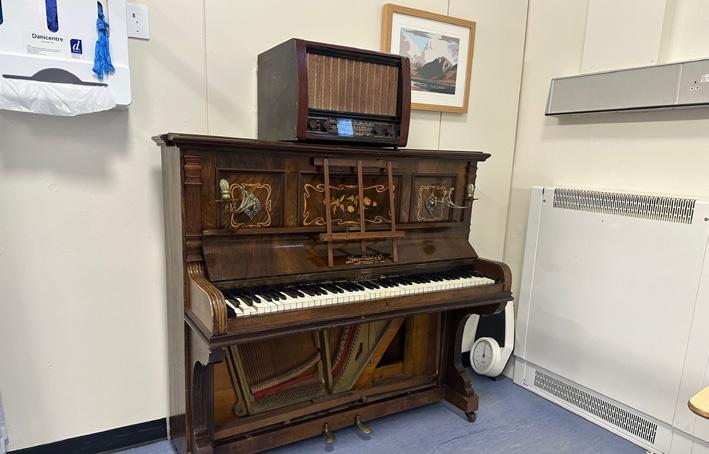
Mohammed, "The piano makes the ward much more welcoming and lots of our patients play it whilst they are here. You don’t want to be in hospital, but when you’re somewhere in a positive environment, it lifts you up. We want people to look forward to coming in.”
However, the piano requires regular tuning to ensure it remains in good working
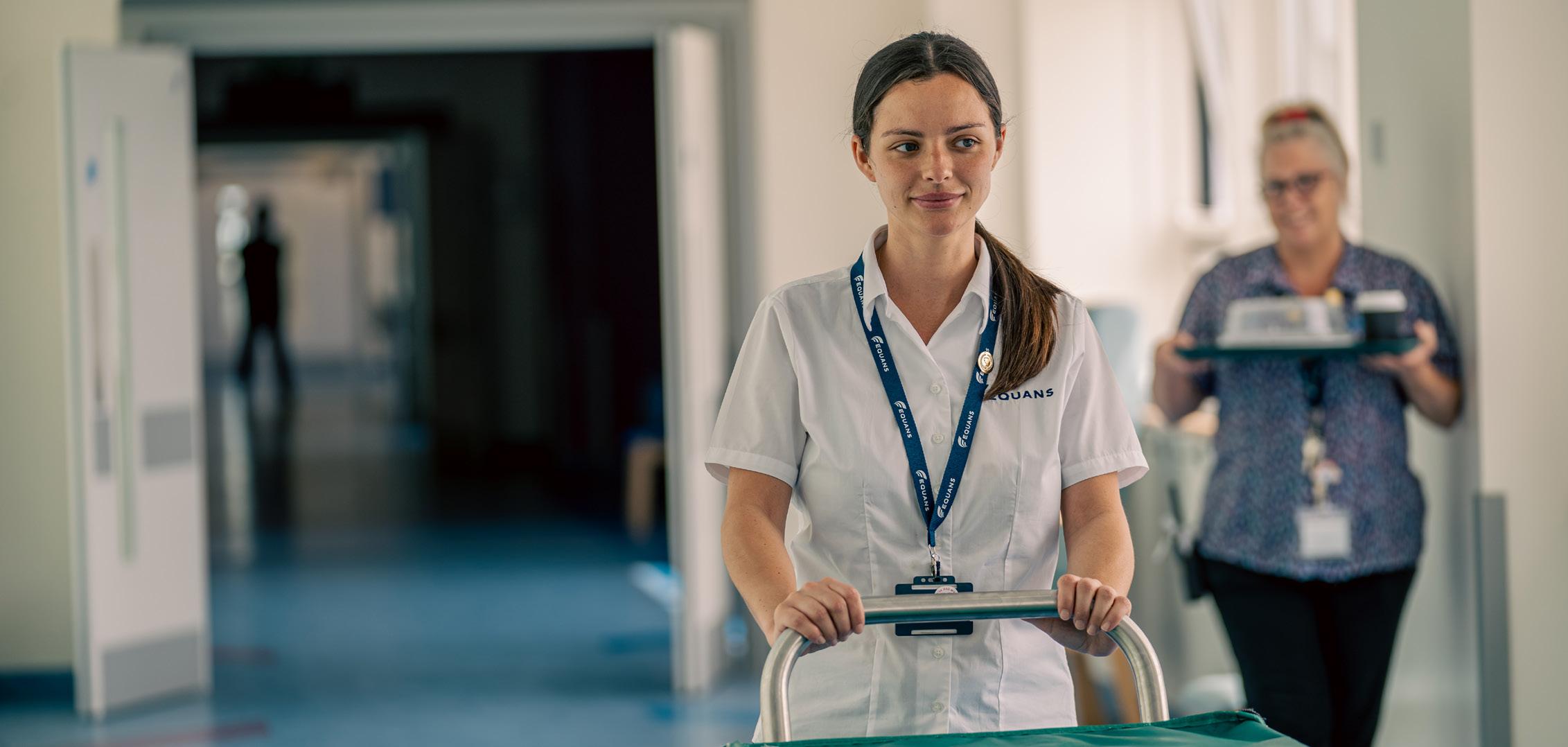
condition. As this falls outside of tight NHS budgets, the team at the Medical Infusion Suite is reaching out to the community for help. If you have experience tuning pianos or know someone who does, please contact Shehnaz Mohammed on shehnaz.mohammed@nhs.net to learn more about how you can make a real impact in the lives of patients and staff at City Hospital.

EQUANS has the mission to connect, power & protect - empowering businesses and communities to not only fully embrace the energy transition, but also the digital & industrial transitions that are redesigning the way we move, work and live.
Acting on our commitment to Net Zero by helping our clients to reduce the amount of carbon that is produced across the NHS Estate.
It’s Sandwell’s newest flagship social care and health facility which is already proving to be delivering successful support to patients.
Offering specialist help from both Sandwell Council and our NHS staff –thanks to a partnership between the two organisations – residents arriving at the venue in Rowley Regis can expect focused care to help them get back up on their feet and build their confidence.
Patient Annette McDonald, aged 63, arrived at the reablement centre two weeks after having a hip operation following a fall at home and praised her experience.
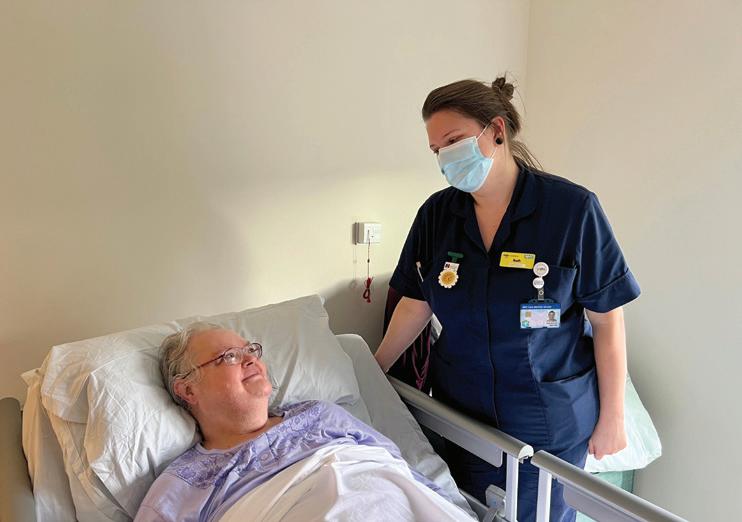
“I’ve had so much help and support since I’ve been here,” she explained. “I cannot fault it. The carers have been assisting with my exercises and building my confidence so that I’ll be back on my feet and able to return home.
“These regular exercise sessions are really helping. The nursing staff have also been providing excellent care – nothing is too much trouble for them and they’re very quick to respond. I’ve been made to feel very welcome and at home.”
Annette added: “The facilities here are excellent, from the food cooked by the chef to the comfortable communal area where I’ll sit and chat to the other residents.
“It’s nice to have some company.”
All residents wear watch alarms so they can buzz for any assistance should they need it. On hand to help are carers and senior carers, like Andrea Eddy, Shelley Ann Hurd and Rita Green (pictured) who are employed by Sandwell Council.
Julie Hunter and Emma Bytheway are both assistant managers, again council employees.
“The facilities here are excellent,” said Emma, who previously worked in a private care home setting. “I haven’t seen anything like this before and the patients who are coming through are very happy with the care they receive and their surroundings.”
It’s no wonder they are happy – each patient is placed in a room with an ensuite and have access to lovely outdoor spaces on the ground floor.
They can relax in bright lounge areas with cosy seating and views over the Rowley hills. And they can even tuck into delicious meals freshly prepared by an onsite chef.
The focus is on maintaining and improving independent living rather than specifically treating the medical condition. However, each of the two floors, which house 32 rooms, has a ward manager and two nurses to tend to any health needs a patient may have.
Beth Hill, ward manager, added: “This facility is about getting patients home safely with the right package of care. They may have come to us from hospital as a ‘step down’ or from the community as a ‘step up’ referred by iCARES.
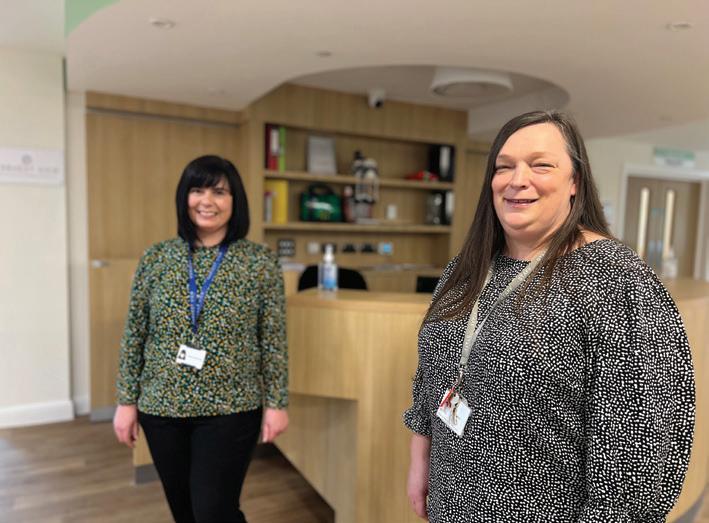
We’ve had patients of all ages, from their 20s right through to their late 90s.”
Councillor Suzanne Hartwell, Sandwell Council’s Cabinet Member for Adults, Social Care and Health, said: “This is such an innovative and collaborative project. Harvest View is a magnificent building. For Sandwell residents who will be using this facility, for their families and for the staff who will be working there, this is an amazing personcentred place.
“Harvest View offers residents choice and control over their care and also promotes independence, helping us with our ambition for Sandwell people to live well and age well.”
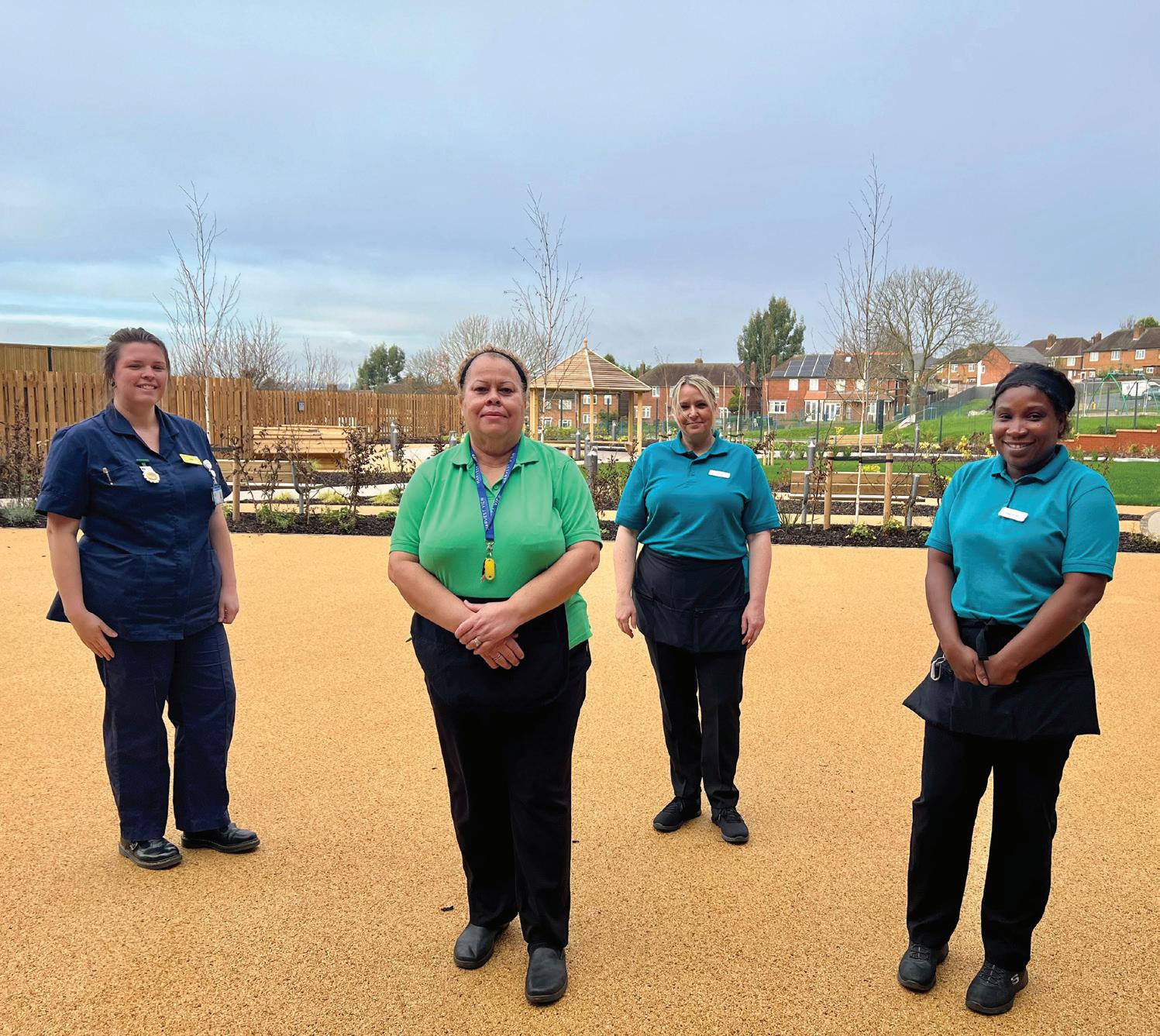
The colorectal nursing team recently acquired an otto ostomy model to improve learning at SWB.
The model aims to explain ostomies and give better understand stomas. The digestive and urinary tracts are presented in 3D to help learners visualise the location and function of the various organs. Modelled from a patient's CT scan, the model features the stomach, small intestine, large intestine, rectum, kidneys, ureters and bladder.
“The abdomen model will act as a teaching aid for our student nurses as well as established and newly qualified nurses and healthcare assistants at SWB,” said Sara Connor, Colorectal Nursing Team Manager.
“Prior to acquiring the model, we were restricted to using very basic tools of teaching such as worksheets and PowerPoint presentations but now we have the otto ostomy model our teachings will be more engaging and interactive for all those involved.”
The model itself was donated to the Trust from the Ileostomy Association as the members of the association thought it would be a valuable visual and educational tool which could improve nurse education at SWB.
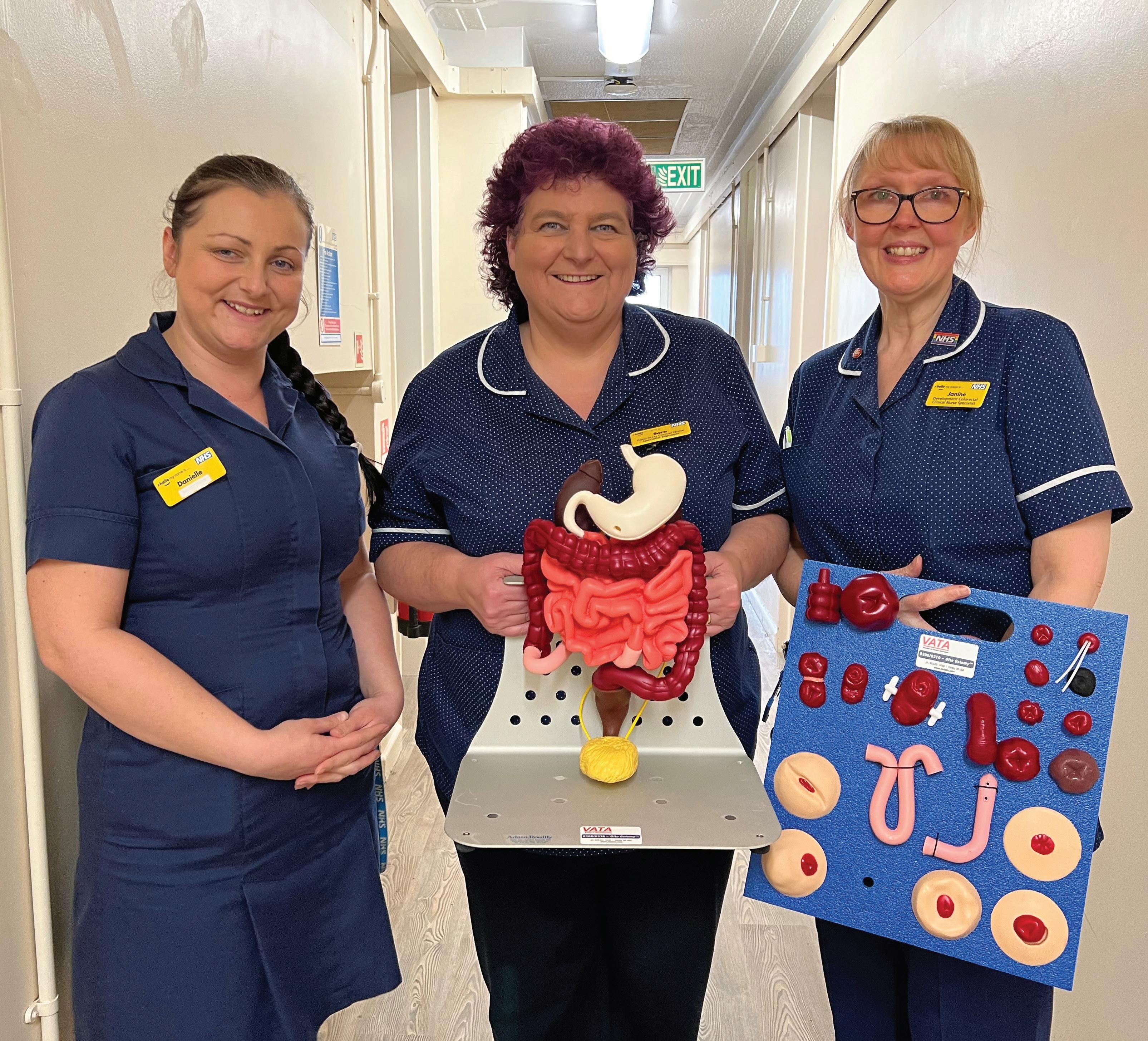
Sara agrees with the association and said: “The otto ostomy model will assist when teaching anything around anatomy physiology and types of abdominal surgery will certainly improve knowledge at Trust which will in
turn support the patients who are undergoing abdominal surgery.
“I believe a better educated workforce only gives our patients more confidence in the care they are getting and improves their overall satisfaction and understanding of the care they receive from us.”
She added: “I would like to say a huge thank you to the Ileostomy Association and its members as without their kind donation of the model, we would still be limited on how educate our staff on the subject matter of the abdomen.”
Gastroscopy and colonoscopy are important diagnostic and treatment tools used for a variety of medical conditions and in order to ensure that colleagues are properly trained to use these tools, it is essential that they have access to high-quality training opportunities where they are able to get hands on. Endoscopy training courses are an important and mandatory part of specialist registrar training and our Trust has now become a national training centre for endoscopy, delivering high quality endoscopy training.
To find out more, Heartbeat spoke to Imran Ghanghro, Consultant Gastroenterologist and Endoscopy Training Lead. He said, “We are fortunate that we are now able to provide national endoscopy training courses at SWB. We are now a spoke
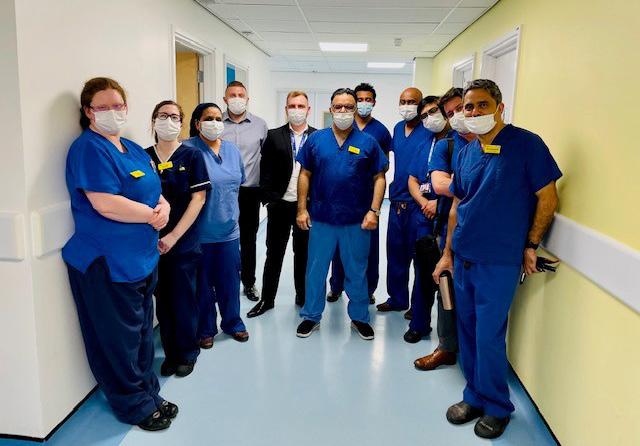
centre for the West Midlands Training academy.
“We have conducted three training courses including colonoscopy upskilling and two train the colonoscopy trainer courses so far and have received excellent feedback. As a part of being a spoke site for the training academy, we are also providing immersive training: intense colonoscopy training for either surgical or gastro registrars identified by the deanery to help them improve skills and increase the number of procedures.
“We have also delivered training and teaching at Birmingham City University and our endoscopy staff has been helping with training courses. SWB faculty also helped with a BSG taster course at BCU in 2022 that was very much appreciated by the trainees. We have colonoscopy basic skills courses scheduled in the end of January as well as in March this year and we will be contributing to endoscopy training throughout the year.
“This is something that has been a long time in development, first outlined in 2019 but unfortunately held up with the onset of the COVID-19 pandemic. Now that we’re beginning to recover from the impact of COVID-19 we’re able to start reaping the benefits of our new training and development strategy. Crucially, we’re now a nationally recognised provider of endoscopy training, which attracts talented staff and consultants and ultimately leads to better quality care and outcomes for patients.”
For more information about the training opportunities available contact Imran.Ghanghro1@nhs.net
A pioneering recruitment programme has kick started the careers of 36 candidates who joined the Trust keen to get hands on in healthcare.
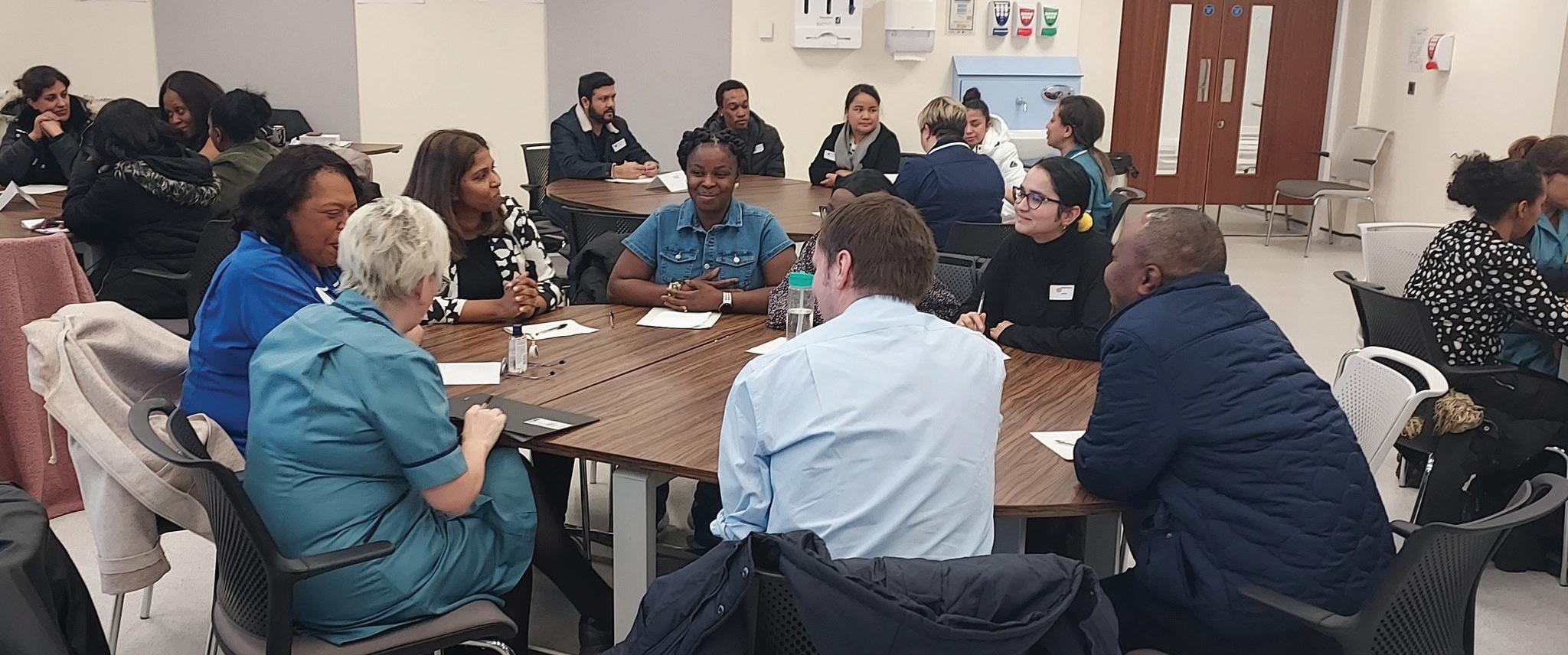
Recently, the medicine and emergency care team at the Trust launched a recruitment drive keen to get candidates into a range of healthcare assistant roles. With the collective efforts of the team, a dynamic recruitment day offering candidates an opportunity to progress through selection and interviews in a single day was planned. Hosted at the Trust’s flagship education centre in Sandwell, the recruitment event launched with clinical leads providing candidates with an insight into healthcare followed by action learning and peer to peer discussion groups and presentations delivered by clinical and nursing teams. Taking an innovative hands-on approach to recruitment and selection, candidates were then given the opportunity to engage with a series of real-life case studies with patients on simulations wards and gain an understanding of the modules, observations and assessments involved in the recruitment process.
Sharing news of the successful recruitment event, Matron for elderly care Jo Thomas said, “We’re really pleased to be able to say that following this innovative recruitment event we were able to end the day with 36 new colleagues being recruited into healthcare assistant roles who should be joining us at the Trust in the new year.”
And for some of those who were unsuccessful in securing roles, it wasn’t the end of the journey. Six additional candidates were offered opportunities via our Supporting Career
Opportunities Recruitment Employment (SCORE) programme for apprenticeship roles here at the Trust whilst they complete their entry level Health and Social Care qualifications.
Chief Nursing Officer Mel Roberts said, “Healthcare assistant roles are a great way for young people to get onto the career ladder in the NHS. These roles give colleagues an opportunity to gain hands on experience on the frontline which they can then use to build on with further training and qualifications.”
Building up our workforce through recruitment, education and training has been one of the key focuses within our maternity department over the past year.
And earlier this month, a celebration event was held for international midwives who’ve joined the team and have since gained Nursing and Midwifery Council (NMC) registration, thanks to their hard work and commitment.
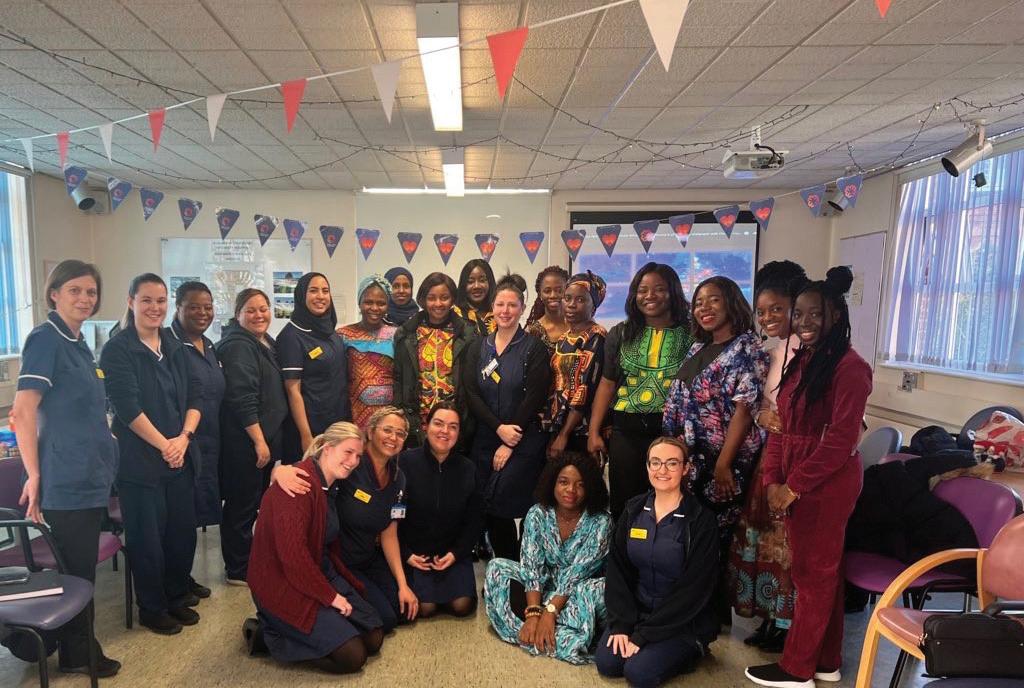
The programme will eventually see a total of 20 midwives joining us, as Jade Hellier, Deputy Head of Midwifery, who is leading the drive explained: “This has been an excellent way in recruiting into the profession, which can sometimes be difficult to do.
“As we know there is a national shortage of midwives and by developing a robust training programme for international midwives, we are able to build up our workforce with candidates who are enthusiastic and keen to join us.
“They are qualified in their own country, but they have to go through a training process to ensure they can practice in the
UK and gain entry to the NMC professional register.” Jade has worked with the midwifery education team to come up with a learning package which has so far produced a 100 per cent pass rate.
The midwives start at band 4 level and have to sit a number of tests, including an English exam and what is known as an OSCE - a competency test, before progressing to band 5 once they pass all required exams. The midwifery team then support the midwives through a competency package to aid their progression to band 6 over a 12-18 month period.
On arrival to the UK the education team support the midwives with 23 hours of study each week, broken down into 7.5 hours structured teaching, and 7.5 hours of self-directed study each week. They also spend three days in a clinical area shadowing a midwife.
Sarah Ifoga, one of the midwives, said: “I came to the UK in June last year. I’ve always wanted to work with an organisation that prioritises patient care in order to give them better experiences. I did my research and found this Trust was the best place to be for this, so I’m thrilled to be here.
“I’ve been developing well here and I’m happy with the level of exposure to practice. It’s helping me build my confidence and professional skills.”
Jade added: “It’s a really intensive programme but we have already seen great results. Five midwives who joined us in May have now qualified, whilst nine came to us in November and are working towards the same goal. We will have a further six joining us to make up the 20 places in late January.
“Each individual has shown true dedication and commitment to the role and we are honoured to have them within our team.”
Jade continued: “Our success hasn’t gone unnoticed and we have shared our learning package with the Local Maternity and Neonatal System (LMNS) which brings together midwifery colleagues from across the neighbouring Trusts.”

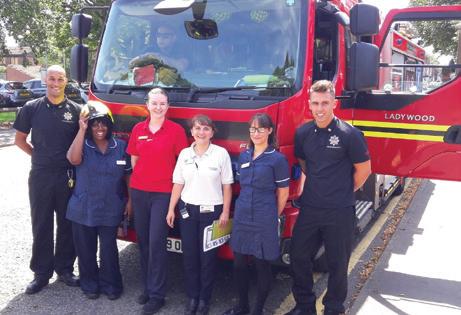

The paediatric epilepsy team held their first ever adolescent epilepsy awareness evening in November, to educate and engage their patients in a new way. They had general informal talks regarding epilepsy, followed by mingling and food at the pilot event.
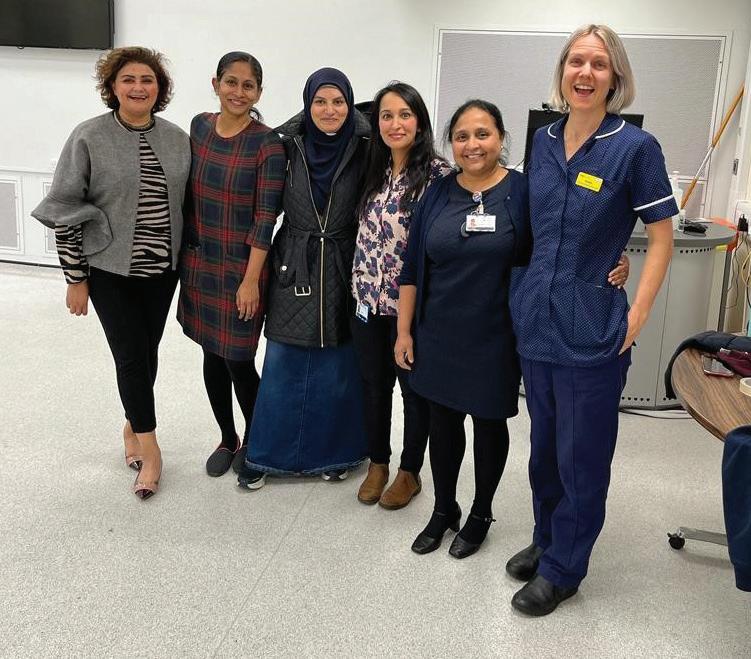
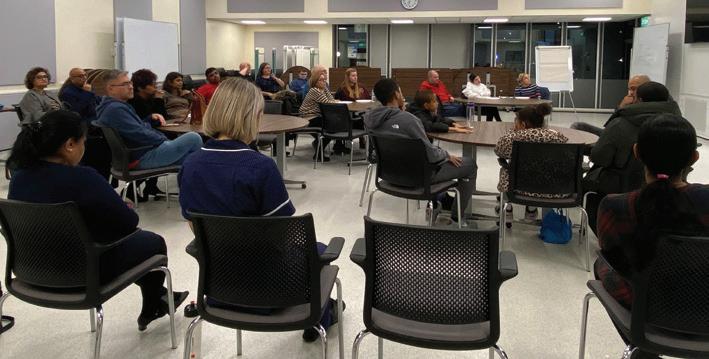
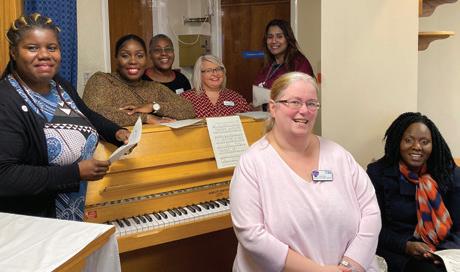
Dr Sanah Ali, ST7 Paediatric Registrar, said: “We know that this cohort can be particularly challenging with compliance and also mental health issues, so we held the event to try and incentivise them to take ownership and control of their disease, and also meet others that may be in a similar situation to themselves.
“We wanted to host the evening to gauge if patients and their families found it useful and to try and find out what they would like to see from the medical team - other than standard outpatient appointments.
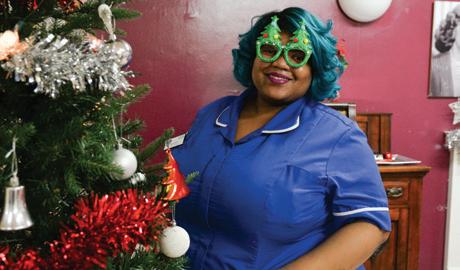
“We had a remarkable turnout, and it was a huge success. Everyone who attended asked for more events to be arranged, which the team are already
planning. The patients really engaged well with each other, and all fed back that they felt ‘less alone’ as they were able to meet other people with their condition.
“The youngsters also fed back that they liked the talks we did and would like more in the future to help understand epilepsy better. They created their own WhatsApp group to keep in touch with one another.
“The parents who came also fed back that they enjoyed seeing their children socialise in a safe environment and that they enjoyed meeting other parents to get advice and chat to other people going through the same things as them.
“Since the evening, we have had patients contact us regarding their epilepsy, so we truly believe it does help with compliance and engagement with the team. By the staff being seen in a less formal environment, it helps to break down the barriers that patients may feel are there, so they can ask questions and engage with us better.”
The team plan to arrange another adolescent epilepsy evening in the summer and going forward hope to arrange these bi-annually. From the back of this success, they are in the process of arranging an event for younger patients and their families.
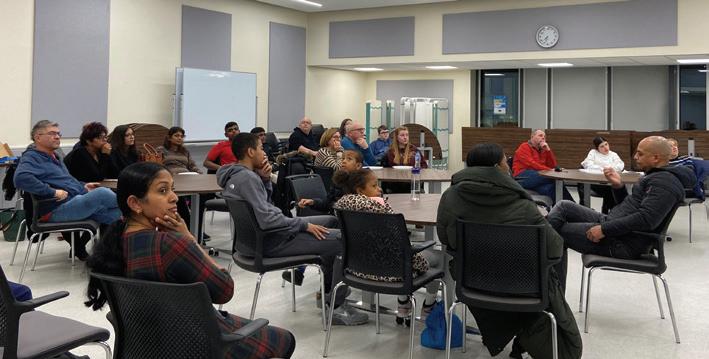
Non-executive directors play an incredibly important strategic role in any organisation and ours is no different; they bring knowledge and skills to the boardroom alongside an open and independent perspective and a duty to uphold the highest standards and integrity in leading the organisation.
Non-executives are full members of the board of directors: they are appointed and expected to participate in committees, scrutinise the performance and objectives of the organisation, ensure the integrity of financial decisions and maintain oversight of clinical and quality standards.
Our most recent non-executive director is Lorraine Harper, who joined SWB in January 2023.
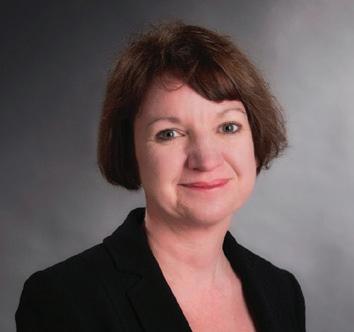
Lorraine brings with her a wealth of research experience to the Trust. Currently Professor of Nephrology at University of Birmingham, she has focussed on the management of patients with inflammatory kidney disease
at University Hospitals Birmingham. She has helped support the development of a regional network of nephrologists and rheumatologists to support best practice in the management of vasculitis. Lorraine has published over 100 research papers in scientific journals as well as reviews and book chapters in the fields of inflammation and nephrology. She was recently appointed as Birmingham Health Partners Research and Health Innovation Director to help bring the benefits of research rapidly to patient.
She is a strong supporter of academic training and development, ensuring research is embedded as normal in healthcare and is the National Institute of Health and Social Care Research Academy Associate Dean responsible for academic training pathways. She is committed to increasing the diversity of individuals engaged with research and chaired the working group that developed the NIHR fellowships awards for research in local authority and changes to the awards for nurses, midwives and allied health professionals.
After three and a half decades, Ruth Francis, Midwife at City Hospital will be retiring.
Ruth began her training 35 years ago back in March 1987, and three years later qualified as a registered nurse.
Though qualified as a registered nurse, it was always Ruth’s intention to be a midwife.
“When I made the decision to enter the health service back in the late 80s, I always wanted to be a midwife,” said Ruth.
“Following qualification as a registered nurse, at the time there weren't many jobs available on the general wards, so it made perfect sense to go for a job on the neonatal unit which I successfully obtained.
“I thought it would be a good opportunity to get used to caring and handling babies. I worked on the neonatal unit for around three years, successfully obtaining the ENB 405 during my time there and I then left in 1993 to commence midwifery training at what was then known as Dudley Road Hospital”.
Ruth has been serving as a midwife for 27 years having officially qualified in 1995 and currently works as a night shift midwife on Ward M2 in our maternity department at City Hospital.
When speaking about her illustrious career, Ruth told us she feels privileged to do the work she has done for so long.
“It has been a real honour to caring for mothers and babies. I have worked alongside many excellent professionals at the Trust during my time who have been brilliant and skilled in their craft, including countless midwives who have taken real pride in the profession.”
She added: “I consider it a wonderful thing to be one of the first individuals to handle the miracle of a newborn baby and to be sharing in the joy that a new life can bring to a family. I encourage all my colleagues to care for each other; be sympathetic and unified. We are stronger when we are together.”
Midwife Janet Russell has worked alongside Ruth for many years and believes she will be missed in the maternity department.
She said: “I have known Ruth for many years: I remember Ruth when she was a student midwife. It has been a pleasure to work alongside Ruth as a colleague as she has a very
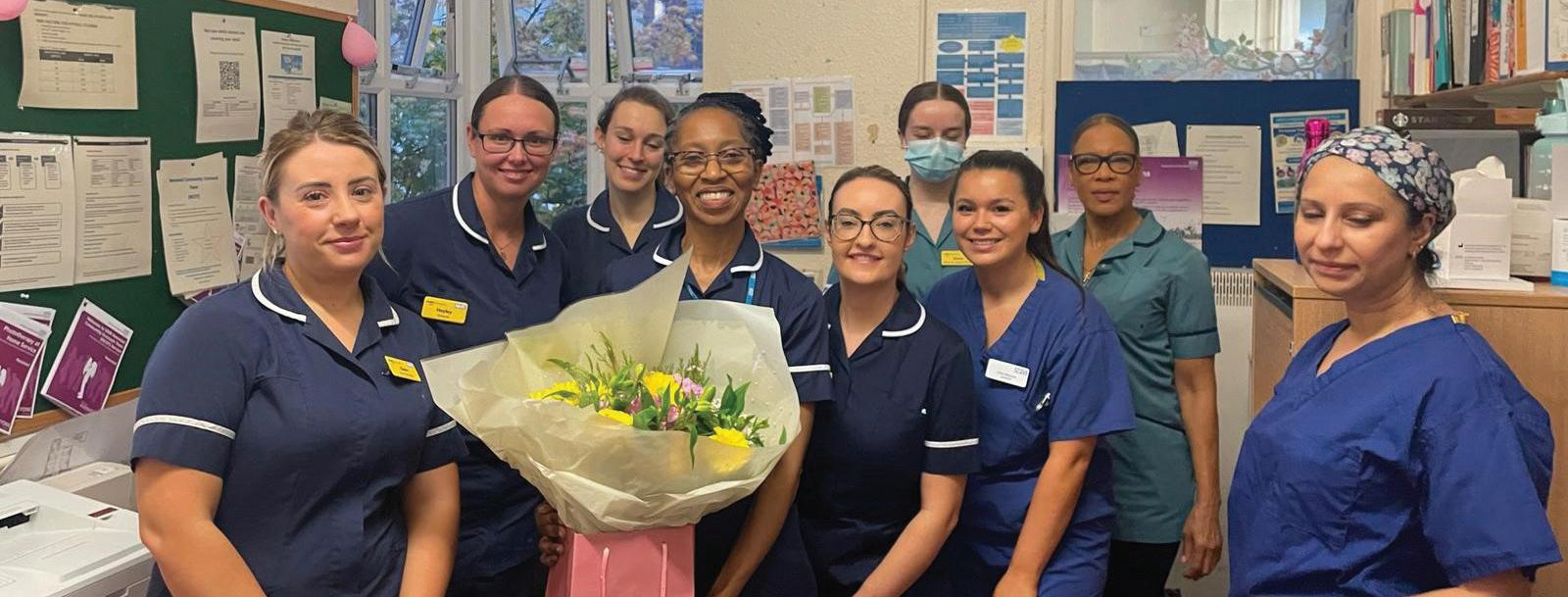 Lorraine Harper
Non-Executive Director
Lorraine Harper
Non-Executive Director
She is an enthusiastic communicator on the theme of translational renal research and regularly presents at both local and national level. She has been a member of several committees, including chair of the inaugural UK Kidney Research Consortium Glomerulonephritis Clinical Study Group. She was Honorary Secretary of the UK’S Renal Association.
Welcome to the Trust Lorraine!
cheerful and charming nature. She is loved by the patients and staff like and an ideal role model for the department and Trust.
Claire Whitehouse and Pam Gibbons, M2 Ward Managers echoed these thoughts and said: “Ruth has dedicated many years to SWB. She has a strong passion for empowering women, leads by example and is always supportive of junior members of staff. When she is on shift, she gives her all to make the experience of mums and babies in her care the best it can possibly be. She goes above and beyond to ensure everyone feels welcome and always wears a smile and tries to see the positives in all situations.”
As part of her retirement Ruth plans on spending more quality with all her family including her mother who has been a source of encouragement throughout her life.
Happy retirement Ruth!
Are we going to get more opportunities to get vaccinated?
Dear Heartbeat,
I know the vaccination campaign has been running for a bit now, but we’re all really busy and sometimes it’s hard to find the time to get off the ward and to a clinic. Are you going to carry on vaccinating after things have (hopefully) calmed down for a bit?
Kind regards
Anon
Dear Anonymous,
Thanks for your query. It’s really important that our colleagues get vaccinated where possible, and to this end we can confirm we will be vaccinating until the end of March 2023. Currently we are accepting drop-ins at both Sandwell (quiet room, main reception) and City (baby feeding room, main corridor) sites on Monday - Friday only. Hours are 8.30am - 4pm, with extensions on Wednesdays from 7am until 4pm and Thursday from 8.30am until 8pm.
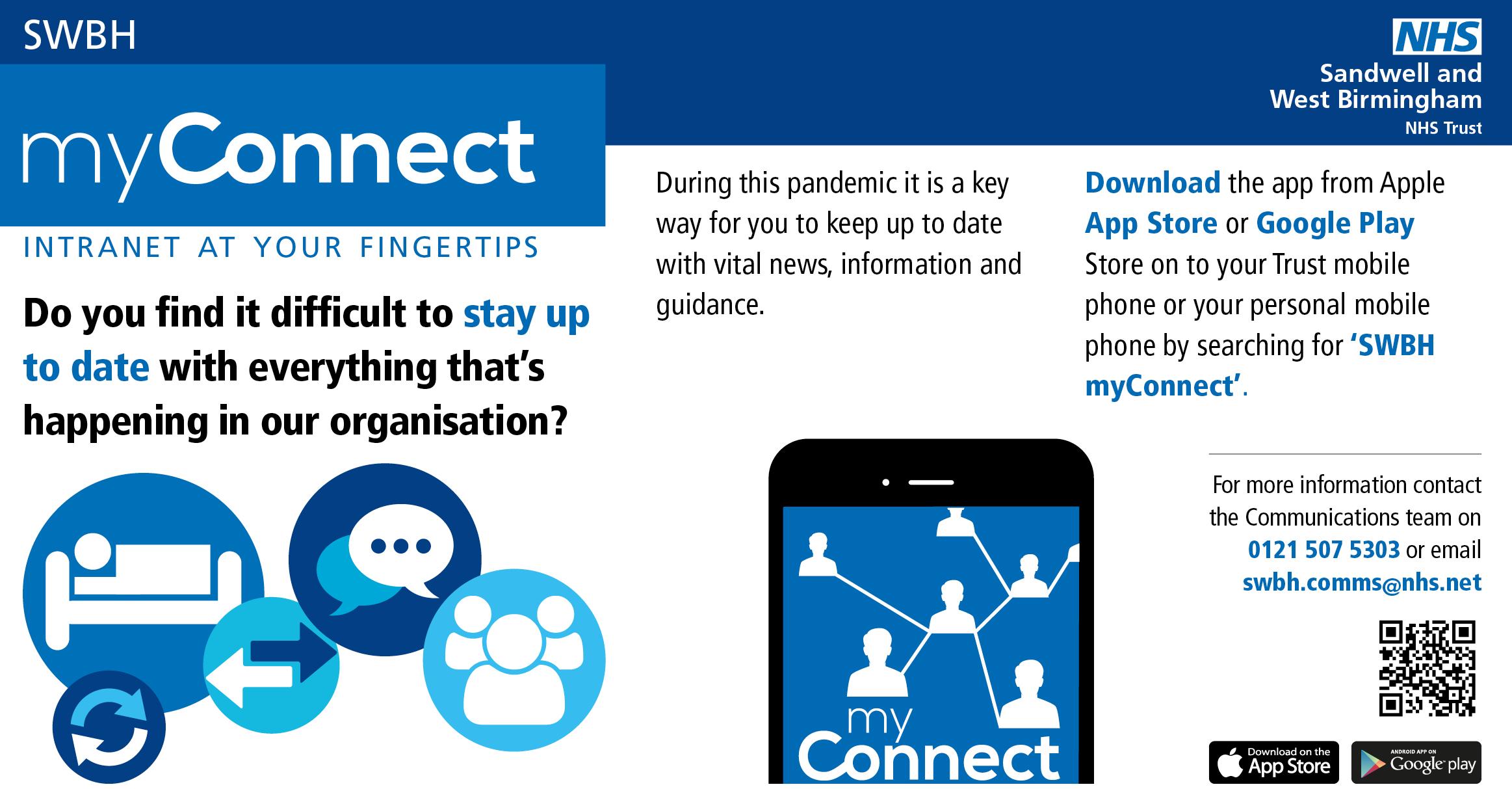
The only change to the COVID vaccine programme is that the teams are taking names and booking appointments (from within the hub) for COVID vaccines when needed, to maximise the number of people we can vaccinate per vial and reduce wastage.
When the hubs are not manned a notice will be on the doors to advise when next open; this will be due to either breaks, roaming wards or no covid vaccinations available.
If you have not already done so, please get vaccinated now!
Kind regards,
Mel Roberts Chief Nursing OfficerWater dispensers
Dear Heartbeat,
Last summer we were given bottled water because of the heat. At the time, we were told by Richard Beeken that the trust were looking at getting us water dispensers so we weren’t stuck with the water that comes out the taps, which is lukewarm and doesn’t taste great. Is there any update on what's happening with this?
Anonymous
Dear Anonymous,
We’re aware that colleagues have been asking about the water at SWB. It can take a while to go through the necessary procedures, but I’m pleased to let you know that following consultation with colleagues in various different departments, including IPC, water dispensers have now been ordered and will be available to use at Sandwell, City, Rowley and Leasowes. Installation will take a couple of months, and as such the dispensers will be in place for the summer.
Kind regards,
Richard Beeken Chief Executive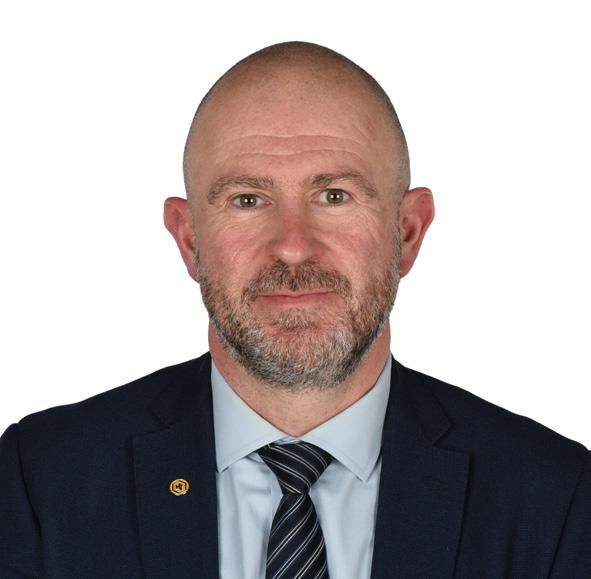
This month colleagues, I want to express my gratitude for the professionalism and kindness you have demonstrated over the last few weeks in the face of extreme challenges on our services.
We have come through a very tough period, like nothing we have seen before. We declared three critical incidents, something that is simply unheard of at our Trust and certainly not a decision we took lightly as an executive team.
During that period we were able to safely expand the bed base, provide additional medical cover and ensured senior leadership were on the ground to support our teams. I fully accept that some of the coordination of this felt chaotic to many clinical staff and I would like to apologise for that.

The response we saw from teams was really positive and had an impact on deescalating rising pressure on waits in ED and ambulance offloads. In addition, our partners, in particular the local authorities in Sandwell and Birmingham as well as Malling Health, responded to the system pressures and provided extra staff and increased capacity to support admission avoidance and discharges.
Adult social care played their part hugely and met with our leadership team within Primary Care, Communities and Therapies Group (PCCT) on a daily basis to support and assist with developing a rapid response to issues. The combined efforts of adult social care and PCCT led to record numbers of people being discharged each day on complex discharge pathways 1-4.
Sandwell Place (which we host as an NHS Trust) has commissioned extra beds across the community and increased care packages across voluntary and community services to support with wraparound welfare and care.
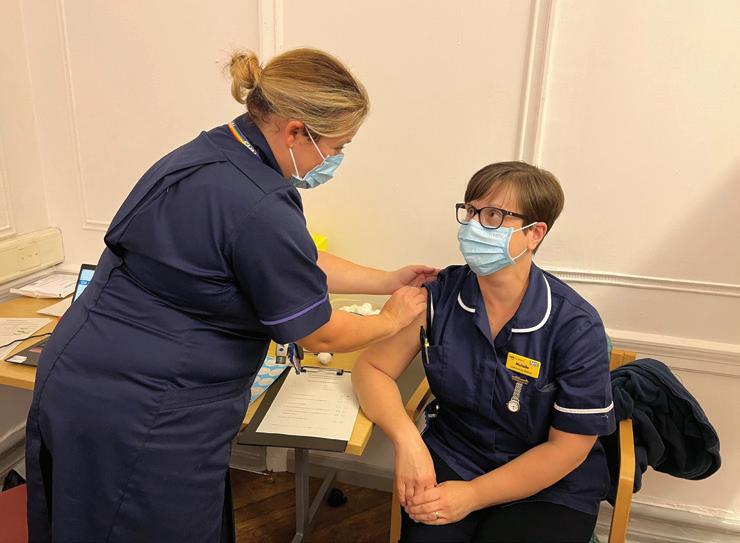
In March, a full review of our winter plan will be discussed at the Trust Board meeting. This will review activity, our predictions and the recruitment plans for the services for which we were able to secure additional funding. It will also critically review our escalation arrangements and our critical incident policy. Going forward we have continued with some of the additional staffing to support admission avoidance and PCCT continue to recruit to front door and admission avoidance services to strengthen this aspect of our winter plan. We have now been able to close the majority of the surge beds, however, they do remain as a backup
Our vaccination programme is running until the end of March 2023
should demand necessitate and should we assure ourselves we can safely staff them.
Our discharging processes are starting to have a positive impact on capacity and patient care. We now run virtual wards for frailty, respiratory, epicentre (hospital at home), paediatrics and palliative care with cardiology due to start soon. At the time of writing this column, since October 2022 we have had 233 admissions and the average length of stay is 7 days. The integrated discharge hub has discharged 1,876 people with complex needs over the last five months. The team have also doubled the number of people discharged each day who have complex needs; now discharging up to 22 people a day.
As an integrated Trust there is always more we can do to ensure we are successful in delivering for our patients at a time when members of public are accessing our services in higher numbers than ever before or have a higher acuity on admission, than ever before. We could be braver in supporting people with ongoing care needs to go home earlier. Consider pre-emptive discharge planning as the patient arrives in ED, assessment units and the wards. If a patient has complex needs, alert the integrated discharge hub and virtual wards so they can plan to support the patient to get home. We cannot keep opening additional physical beds to respond to changes in demand –admission avoidance and discharge facilitation are the key to a more stable future.
Above all, please include all stakeholders in the discharge process including the patient and their family or their carers. Everyone needs to understand what the discharge pathway means for them and we cannot have enough conversations with our service users about nuanced and complex journeys.
Thank you for all you do.
want to support you in any way we can. That's why we have kept prices low to support colleagues who may be struggling with the cost of living.
“But we don't just stop there! Our shops also promote sustainability. By shopping with us, you're not only making smart
financial choices, but you're also doing your part in protecting the environment. Don't wait, head to our staff pop-up shop and uniform swap shop today and start shopping smart and convenient! Make your life easier and support your fellow colleagues and the environment at the same time.
@SWBHCharity To donate to the Your Trust Charity text “SWBH16 £5” to 70070
Tired of running errands after long shift at the hospital only to spend a small fortune in the supermarket? Look no further! Our Trust has just opened a staff popup shop selling pantry staples, and more, all at affordable prices.
And let's not forget about our brand new school uniform swap shop. Say goodbye to the hassle and expense of buying new uniforms every term! Instead, pop in to the school uniform swap shop to get your hands on good quality uniforms that have plenty of life left in them. Support each other by trading in unforms that are now too small for your children and support colleague and families, saving money and reducing textile waste.
Highlighting the benefit of the shops, Volunteer Service Manager Patricia Hunt said, “Our pop-up shop and uniform swap shop is designed to make your life easier, providing you with a convenient location to purchase household items and collect school uniforms during your busy schedule. We understand that working in healthcare can be demanding, and we
Pop to the shop on the ground floor of Sheldon Block Every Tuesday, 10am - 2pm and every Thursday, 2pm - 6pm
The sustainable school swap shop is open every Tuesday, 8.30am - 10am and 2pm - 4pm at on corridor A, above main reception at City Hospital (the room between the Wellbeing room and IT room).
351490 or email patriciahunt@nhs.net
Don’t forget that Your Trust Charity lottery costs just £1 a month and anyone who works for the Trust can join. Payment is deducted from your wages each month. To take part email johnny.shah@nhs.net.